








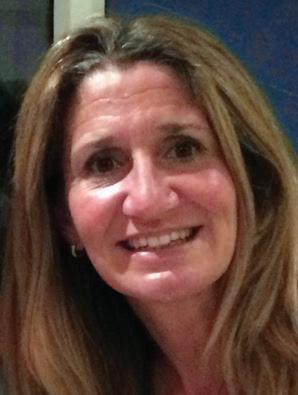
I am thrilled to report that our new membership model for DDLS has been embraced by firms and that the number of individual members of DDLS has now swelled to 420. Which means that (hopefully!!) many more of you are now reading this Bulletin.
So, please e-mail me and tell me what you want from DDLS. We put on courses, social events, sporting events and supporting charity and the community events. Some are very well supported whilst others (happily only a few) are not. So please e-mail me and let me know what works?
Recent courses on family law (thank you to Lucy Tissington for co-ordinating) have sold out. I have a Demystifying Advocacy course by Peter Joyce KC in November that I am
tempted to move to a bigger venue because it has almost sold out already. The Battle of the A52 cricket match was very well supported and DDLS now has more than enough players for its cricket team, with reserves, who will be having a pre-season meal and hopefully three matches in the 2025 season. Rachel Maxwell is doing a fantastic job revitalising the conveyancing sub-committee putting on courses and social events and Peter Kidd has similar plans for a civil litigation sub-committee. Felicity Coats is your contact for the criminal sub-committee. All contact details for these and other subcommittee members are on page 4. Please do get in touch.
With that in mind we are having a meet the committee and drinks on Wednesday 20th November at 4.30pm. This is open to everyone and please e-mail me if you want to come along. We will have the committee meeting at Flint Bishop on Pride Park and then head to Seven for drinks.
The school debate competition invites have
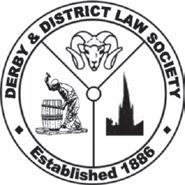
gone out to local schools, and I have 10 teams entered already. The competition itself starts after Christmas and will again take place at the University of Derby Law School on Wednesday afternoons from 4-6pm. If you are interested in judging one of the debates then please let me know.
If you have not already done so, please find DDLS on LinkedIn and www.derbylaw.net to stay up to date with announcements and news. We have an early doors Diwali Curry on 30th October and the amazing Winter Party which is in connection with (and largely organised by) DJL on 22nd November at The Folly, Ashbourne Road Derby. Tickets are £25 for members and the link is https://fienta.com/djl-x-ddls-winterparty-2024
I hope to see you at an event soon.
Take care.
Julia Saunders admin@derbylaw.net
Officers
President*
Tina Attenborough
Attenborough Law, Derby Tel: 01332 558508 tina@ attenboroughlaw.co.uk
Vice-President*
Lucy Tissington lucy.tissington@familylawgroup. co.uk
Immediate Past President*
Oliver Maxwell
Eversheds Sutherland 01332 378696 o.j.z.maxwell@gmail.com
Deputy Vice-President*
Rachel Maxwell Rachel.maxwell@smithpartnership. co.uk
Honorary Secretary*
Fiona Apthorpe
Geldards LLP, Derby Tel: 01332 378335 Fiona.Apthorpe@geldards.com
(* = Ex-Officio)
Parliamentary Liaison Officer
Julie Skill, Elliot Mather LLP Chesterfield Tel: 01246 231288 julie.skill@elliotmather.co.uk
Public Relations Officer (+) Vacant
Derby Junior Lawyers
Laura Matthews laura.matthews@geldards.com
Amelia Sutcliffe amelia.sutcliffe@ smithpartnership. co.uk
George Ottewell George.Ottewell@flintbishop.co.uk
Constituency Council
Representative, Derbyshire (+) Shama Gupta shama.gupta@freeths.co.uk (+) attend Committee by invitation
Other Committee Members
Julie Skill, Elliot Mather LLP Chesterfield Tel: 01246 231288; julie.skill@elliotmather.co.uk
Felicity Coats felicity.coats@elliotmather.co.uk
Diana Copestake Tel: 0845 2725674 dianaohalloran@aol.com
David Hardy Tel: 01332 842008 david.hardy1630@gmail.com
Martin Salt martins@simpsonjones.co.uk Tel: 01332 200200
Claire Twells claire.twells@smithpartnership. co.uk
Sue Jennings sue.jennings@geldards.com
Treasurer*
Ben Lawson
Elliot Mather LLP Tel: 01246 231288 ben.lawson@elliotmather.co.uk
Claire Rudkin
Flint Bishop, Derby Tel: 01332 340211 claire.rudkin@flintbishop.co.uk
Manesha Ruparel MR@AandCo.co.uk
John Ellis John.ellis@smithpartnership.co.uk
Solicitors’ Benevolent Assoc. area representative Peter Lord 9 Larkhill, Swanwick DE55 1DD Tel: 01773 541753
Administrator / Bulletin Editor
Julia Saunders, Email: admin@derbylaw.net
Sub-Committees (Secretary in italics)
Criminal Litigation Andy Cash Felicity Coats felicity.coats@elliotmather.co.uk
Andrew Oldroyd (01332 225225)
Education & Training Sue Jennings, & all Sub-Committee Secretaries
Employment and Business Law Sue Jennings
Tina Attenborough tina@attenboroughlaw.co.uk
Equality, Diversity and Inclusion Manesha Ruparel mr@aandco.co.uk
Tina Attenborough tina@attenboroughlaw.co.uk
Sue Jennings sue.jennings@geldards.com
Family Law FionaApthorpe
David Guthrie dg@aflp.co.uk
Fiona Apthorpe Fiona.Apthorpe@geldards.com
Fiona Lazenby fiona.lazenby@knightsplc.com
Julie Skill Julie.Skill@elliotmather.co.uk
Kelly Mower kellym@eglegal.co.uk
Liz Guyler lizguyler@eglegal.co.uk
Lucy Tissington lucy.tissington@familylawgroup. co.uk
Manesha Ruparel MR@AandCo.co.uk
Melanie Bridgen melanie.bridgen@nelsonslaw. co.uk
Natalie Haydon-Yeung Natalie.Haydon-Yeung@geldards. com
Nick Herbert nh@aflp.co.uk
Ruth Jones ruth.jones@smithpartnership. co.uk
Sole Practitioners’ Group (SPG) Tina Attenborough tina@attenboroughlaw.co.uk
Last updated 08.10.24
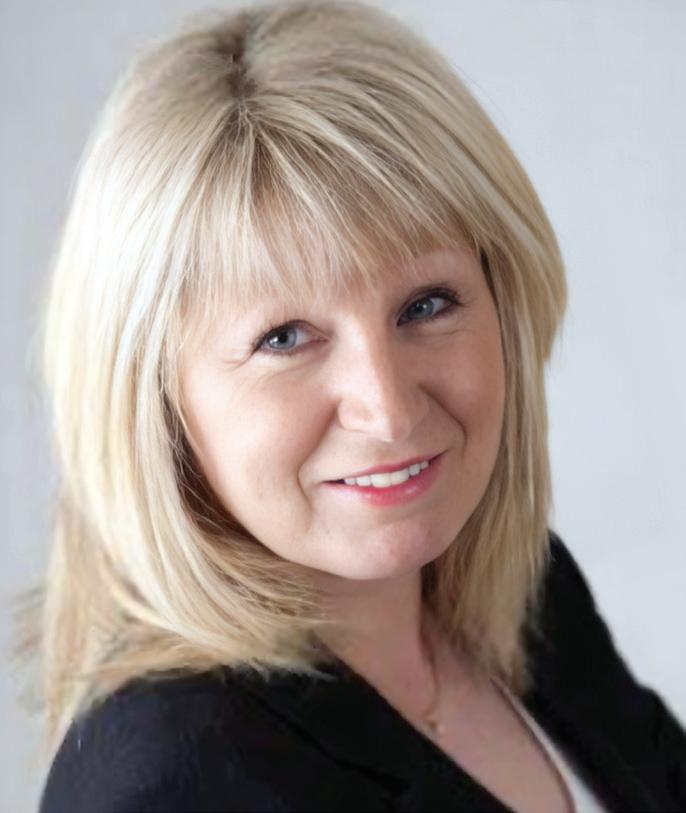
Welcome to the October edition of the DDLS bulletin, with autumn now in full swing, I hope everyone has enjoyed the summer, especially those of you taking precious time off to be with the children during the school holidays! As previously reported, I took myself off to Cornwall for the summer and whilst it wasn’t the summer of 1976 the weather was mostly okay and the sun did come out, albeit not quite consistently enough for me!
However, I did get chance to meet up in Truro with my good friend Roz Watkins, formally the managing partner at Swindell & Pearson, and now a fully-fledged crime writer, in the process of writing her 5th book. Having moved from Derbyshire to Falmouth about a year ago, at a guess the 5th book will feature a murder on the coastal terrain of Cornwall instead of the Derbyshire peaks and so I’m really looking forward to that coming out in the new year.
My summer thankfully consisted of lots of highs, I attended my niece’s wedding at Mythe Barn in Leicester, enjoyed some coastal golf, tried my hand at flat green bowling and entertained friends and family who came to visit us and last but not least had a date with David Essex in concert, which brought back some happy and nostalgic memories from the 70’s and 80’s.
The annual inter law society Nottingham v Derby Cricket match was held at the Attenborough ground on 29th August, it was a great game albeit the Derby team came second on this occasion.
We held the first DDLS charity networking golf game at Breadsall Priory. It was a blustery day, but the rain forecasted stayed away and a great afternoon was had by all. If you play golf and would like to get involved in the next event, please let us have your name and contact details for selection purposes.
And with that the summer was over once again, but we quickly enter my favourite season of autumn, together with long walks, big jumpers and log fires. The summer months are quiet as far as Presidential duties are concerned, but we have all been working behind the scenes to continue increasing the membership, organising events and benefits for our members as well as working to increase engagement with the business community.
We now have a Public Sector membership section and I’m continuing to work on a Charity section too. For this bulletin I was lucky enough
to interview Ian Morgan OBE, Derbyshire’s High Sherrif and CEO of Derbyshire Cricket Club. A keen all-round sports fan who also runs his own business and still finds time to spend with and entertain his four grandchildren. What a lovely gentleman, I hope you enjoy reading his story as much as I did. I am really looking forward to meeting him in person at the High Sheriff’s Legal Service at the Cathedral on Sunday, 13th October next and I hope to see as many of you there as possible too.
This year, despite not being able to bake and not being part of a bigger team, I’m going to try my hand at baking, so if I can do it, so can you! Please dust off your pinnies and your cake tins and get baking for the Annual Charity Bake Off which is due to take place on Monday, 7th October next. Together Rachel Morris (CEO of our chosen charity, SV2 Supporting victims of sexual violence) and I will be judging the competition, and I look forward to presenting a cheque from all the money raised for this great cause.
Please keep an eye open for the events coming up including our next Tapas Thursday Networking event at Lorentes in the Mills, on 10th October next. Please find the link on Fienta to get your ticket, although spaces are limited.
The joint DJL and DDLS Winter Party is taking place at The Farmhouse on Ashbourne Road, Derby on Friday, 22nd November next, it promises to be a great night and look forward to seeing you there, especially as my daughter, Laura Matthews will be taking over the Presidency of DJL during the same year as mine. I wonder how many mothers and daughters there have previously been in the same position, in history.
By way of a reminder, don’t forget to check out our diary of upcoming events, it would be great to see you and meet some new faces too.
Tina Attenborough President, 2024-25

Affinity Law, a niche law firm specialising in serious injury claims and Court of Protection has taken up residence on Vernon Street as part of an “exciting chapter of development”, moving from its former premises on Bateman Street.
The opening party on 12th September welcomed a variety of professionals from across the East Midlands, including fellow lawyers, barristers, medical professionals and financial advisors. Highlights included a cocktail and mocktail van on site, as well as a charity raffle raising £341.19.
Debra Morris, Solicitor and Assistant Director who runs the Derby office, said: “This is an extremely exciting chapter of growth and development for our firm as we settle into our gorgeous three-storey listed building in the heart of Derby, supported by some new wonderful staff.
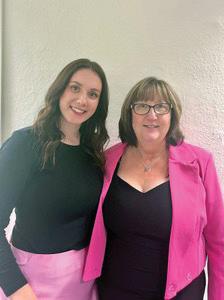

“It has been a privilege and an honour to head up the Derby office since its launch in 2018 and I can’t wait to see what the next six years brings.”
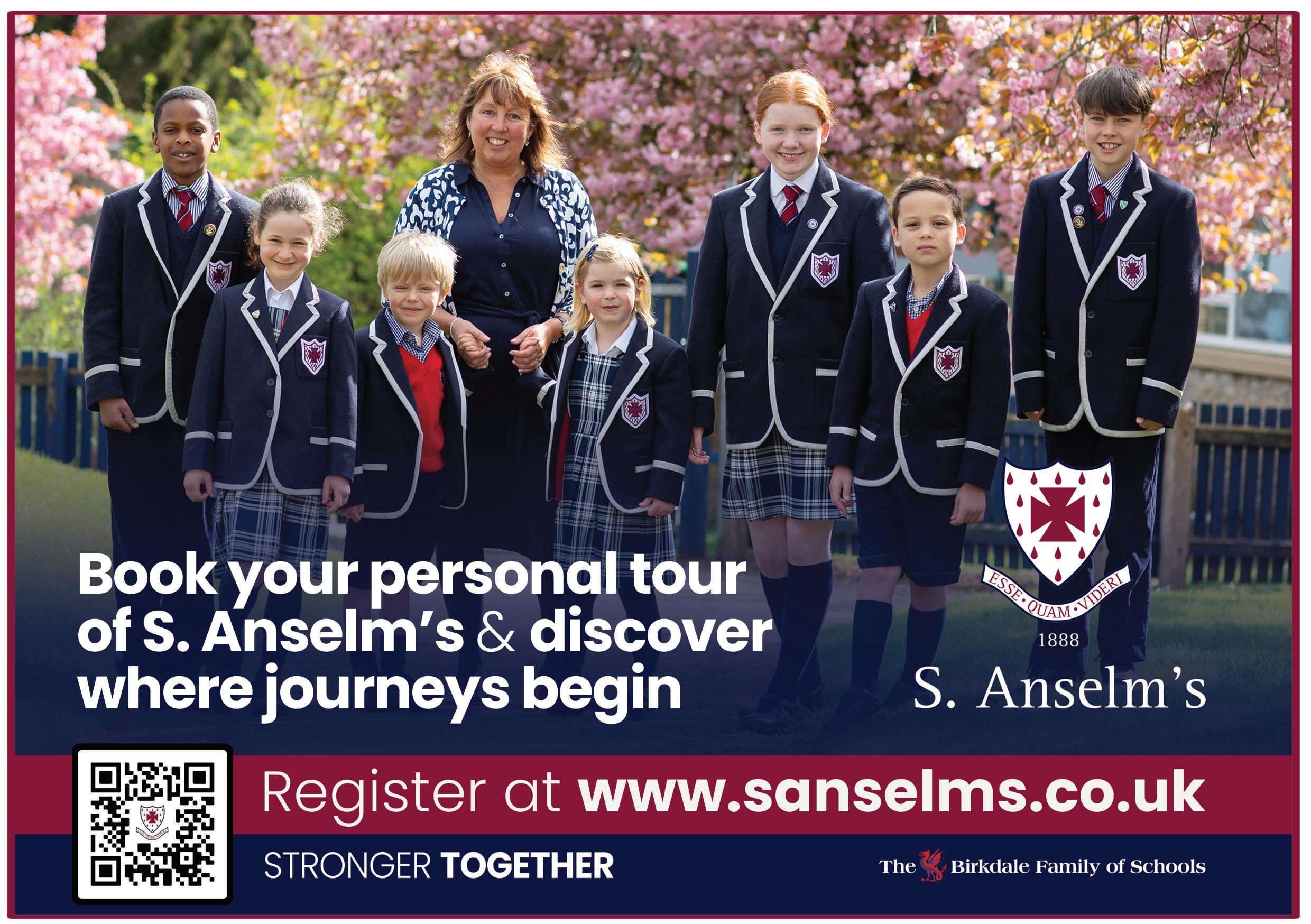

Who we are
Founded in 2000, DG Legal is the largest provider of compliance services for solicitors and law firms operating in England and Wales. Our core mission is to help law firms achieve their potential through strategic, compliance and business objectives by utilising outstanding expertise, which is backed by great service.

Our team includes a number of external consultants who are leading experts in their respective areas, such as Anti-Money Laundering (AML) regulations and sanctions, UK GDPR, data protection and information security, Solicitors Regulation Authority (SRA), Bar Standards Board (BSB) and Office of the Immigration Services Commissioner (OISC) authorisations, Legal Aid Contracts, complaints, confidentiality, conflicts and quality assurance standards such as SQM, Lexcel, CQS and WIQS.
What we do
Here at DG Legal we offer: Compliance Support:
• helping firms to maintain a suite of compliance documents
• providing templates to help maintain compliance records
• email and telephone support
• publishing monthly compliance bulletins
• assisting with preparation for quality standard, SRA and LAA audits
Training and Webinars:
• free webinars delivered by leading barristers and experts
• in-depth training courses delivered by our expert consultants on topics such as AML, Sanctions, GDPR and quality standard compliance
Specialist Services:
• GDPR compliance advice
• new firm authorisation assistance
• guidance on Lexcel, SQM, CQS and WIQS accreditations
• SRA investigations.
Community Engagement and Industry Involvement
In a dynamic legal industry, it is vital to access the right support in navigating the evercomplex regulatory environment. As such, DG Legal offers several resources to assist law firms in maintaining compliance and efficiency.

We offer a comprehensive management tool called ‘Compliance Caddy’, which is used by over 150 law firms and is the most economical compliance software on the market. It is designed to help small and medium-sized firms meet their COLP and COFA obligations.
Some of the features of the software include:
• COLP and COFA monthly checklists
• File Review checklists and records
• UK GDPR records
• Compliance registers, including Breaches, Risks, etc
• AML compliance registers
• SRA Competence-Based Training Plans and Records.
DG Legal is widely involved in local law societies and associations. We also sponsor university events to meet the next generation of lawyers, promote continuous development and increase awareness of the importance of compliance for law firms.
We constantly broaden our range of services to address emerging needs in the legal industry. This includes enhancing compliance solutions by developing more comprehensive tools and resources to assist firms. We will also continue to introduce new training courses and webinars on current topics to keep legal professionals up to date.
Investing in technology is a key part of DG Legal’s strategy. We plan to continue creating innovative software tools to streamline compliance and practice management for law firms.
We maintain our commitment to the legal community by increasing our offering of free webinars and training to support ongoing professional development. In addition, we will continue to provide guides and articles to help law firms remain compliant.
Our clients’ success is a testament to the quality of our services. Since we were established in 2000, we have proudly assisted to thousands of law firms and other legal organisations. Here are a few examples of clients who we have assisted in achieving their strategic and compliance goals:
“DG legal is a one stop shop for legal consultancy. The team headed by David has such a broad spectrum of experience that they are always able to provide first class advice whatever the situation. Their ongoing compliance toolkit is extremely user friendly and they are always one step ahead of compliance updates” – Robert Borwick, Director, ABV Solicitors
“A huge thank you to Emma, Alison and the team at DG Legal for their help with the preparation for our recent Lexcel audit … prompts and suggestions maintained our focus, ensuring internal deadlines were met and ensuring all documentation was ready for inspection, resulting in an audit with no corrective actions” – Emery Johnson Astills
“We’ve had the pleasure of utilising the services of DG Legal for many years now and I don’t know how we would manage without them. They’re an amazing team with extensive knowledge on all matters of compliance and regulation. They’re always so happy to assist on the other side of the phone, it feels like they’re part of the firm. I would recommend them to all legal practices, having them on board means I can just get on with practising the law” – Rakesh Veja, Director, Thaliwal & Veja Solicitors
“I have had the benefit of some excellent support and advice from David Gilmore and his colleagues at D G Legal over many years ... Dealing with Catherine felt like having an extra specialist on our in house compliance team. She completely understood what was required and provided excellent advice and support in a professional and proactive way” – Phil Walsh, Partner & Practice Manager | Miles & Partners LLP
“Whenever we have engaged David in a project, he has added value beyond his remit and his input has always paid dividends beyond the cost” – Bob Nightingale MBE, Chief Executive, London Legal Support Trust
If you have any questions or would like more information about our services, please visit https://dglegal.co.uk/ or alternatively, contact us at consultants@dglegal.co.uk or call us on 01509 214 999.
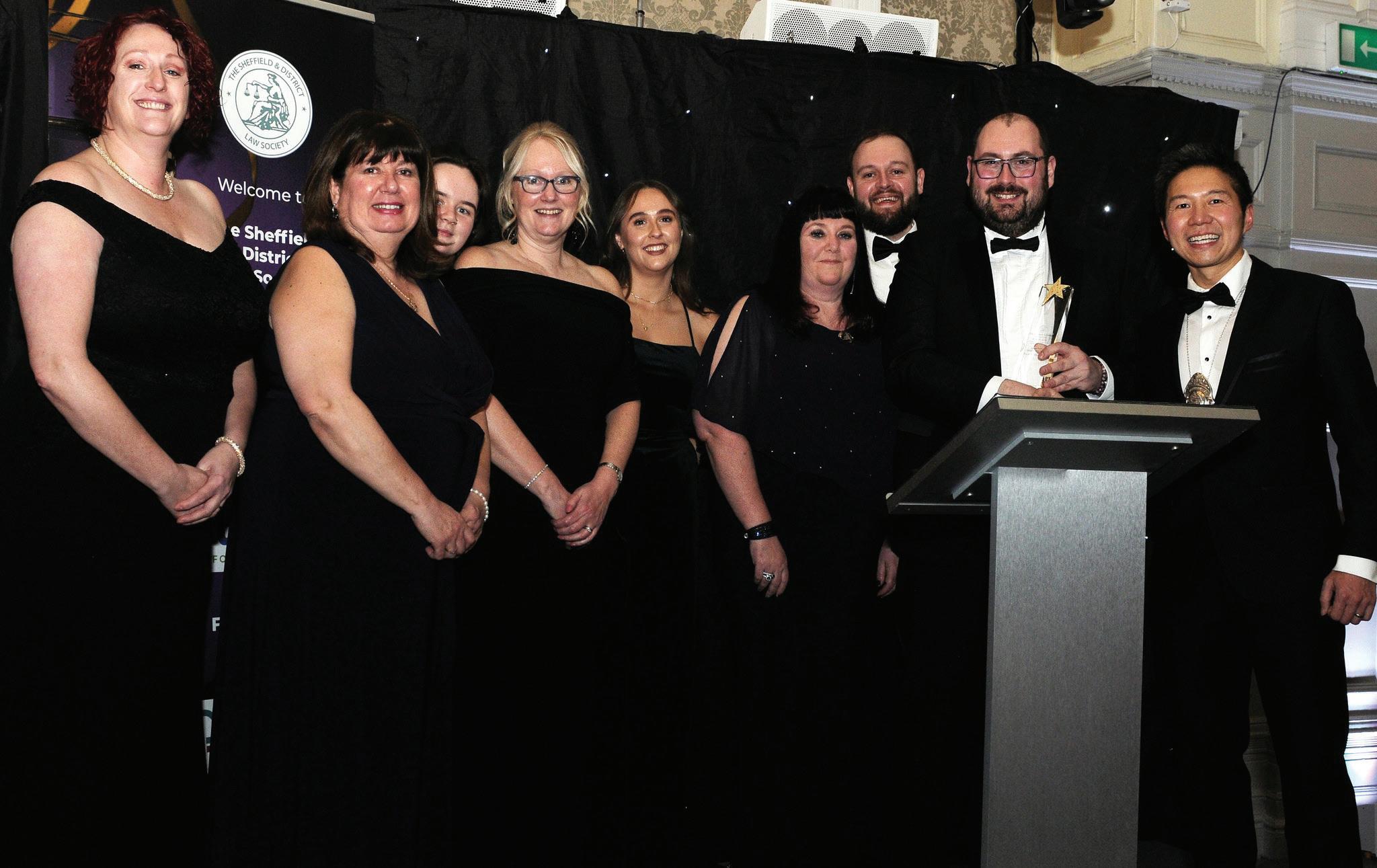
Derbyshire Law Centre was established in 1989 to provide free and low-cost legal advice to Derbyshire residents. Operating out of their Chesterfield based offices, the Law Centre provides advice on Housing including rent arrears and disrepair; Immigration; Employment; Debt and Discrimination. Each year the charity receives approximately 4,400 enquiries for Social Welfare law support.
The purpose of the Law Centre has always been to deliver accessible and affordable legal advice to local communities and the team continues to provide expert advice through the current period of sustained financial uncertainty.
There has never been a higher demand for free legal advice and the Law Centre works with Local Authorities and partner organisations to offer a wrap-around service for people who need it most. Housing Solicitor Gary Steel explains, “Many people come to us with an initial issue, for example, a Section 8 Notice because they have rent arrears. Our holistic approach means that the client isn’t just given advice on their eviction. We can work with community funders to help them clear
their arrears to be able to find secure housing again and our debt team supports them with budgeting plans, breathing space or DRO’s if they need it.”
As well as being committed to making justice accessible for clients, the Law Centre is dedicated to providing a work environment focused on learning and development to support those who want to pursue a career in Social Welfare Law.
Derbyshire Law Centre has a history of facilitating Solicitor training contracts and currently has two members undertaking the training. Madison, who is part way through her seat in the Housing Unit said, “I was employed as a paralegal in Homelessness Prevention before starting my training contract. I’ve learnt a lot so far and have had the opportunity to represent clients at Chesterfield County Court to gain advocacy experience, and my outreach sessions at Ripley Town Hall allows me to work closely with Amber Valley Borough Council and ensure the best outcome for clients there.”
Derbyshire Law Centre runs continued professional development courses for the local legal industry and hosts the Derbyshire
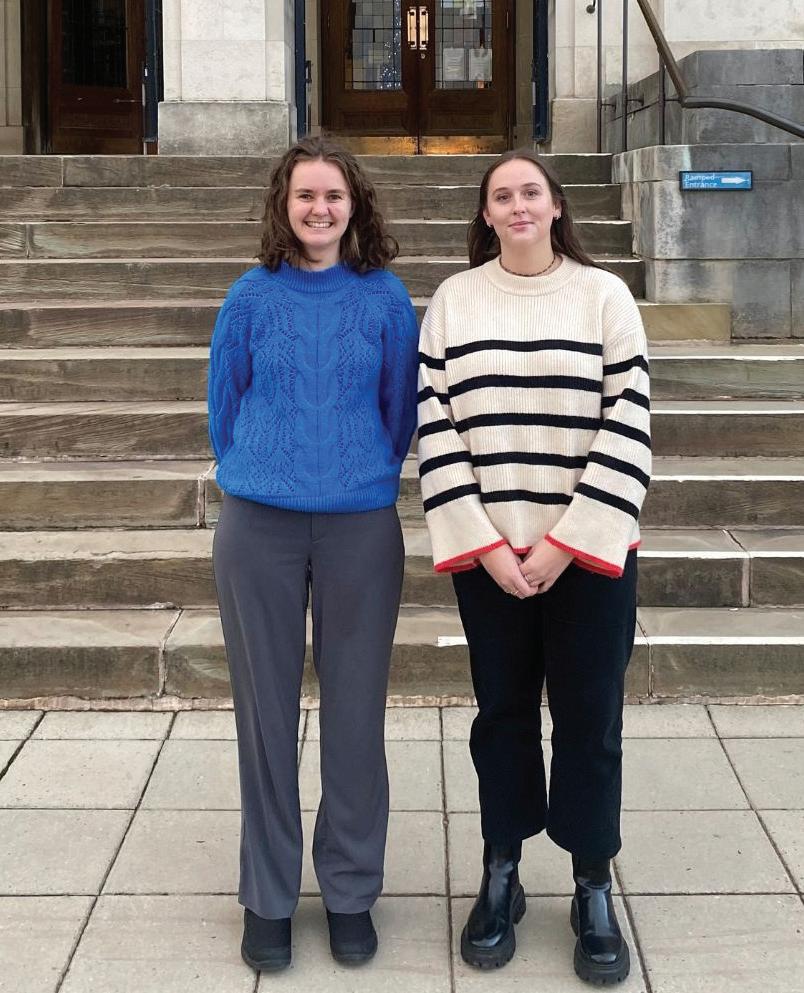
and Nottinghamshire Housing Law Group conference each year. The next conference is supported by Trinity Chambers and will feature updates on Housing Law and an overview of changes, issues and insights from expert barristers. The upcoming conference is on the 29th November and more details can be found at www.DerbyshireLawCentre. org.uk/News-events/
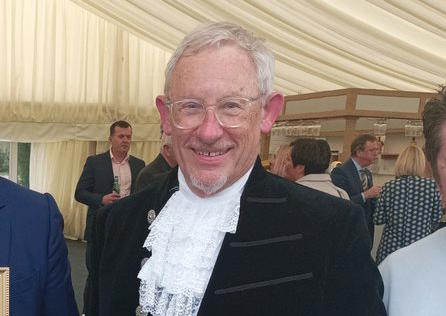
1. Derby is a great city with some admirable development plans for its immediate and longer-term future, do you have any thoughts about the new developments and what they will mean for the people of Derby?
I arrived in Derby almost 40 years ago. I had a peripatetic childhood as the son of a serving RAF officer and after University in Birmingham I worked in Essex, Lancashire and Cumbria pursuing my career in the bus industry. Derby was the first place where I was able to establish roots so I am very excited about the new developments in the City which are long overdue. I believe that it is important that cities refresh their infrastructure to reflect the changing lifestyles, demands and ambitions of all its residents and visitors, particularly the young and young at heart, although not exclusively. Cities must evolve and those that stand still become tired and unattractive very quickly - they get left behind. We are making a very clear statement that we will not be left behind.
Cities must be vibrant and exciting places to live and work and whilst regional cities like Derby can never be 24 hour places that never sleep, we must aspire to be a 17/18 hour city during the week and longer at weekends to be successful.
2. What do you love most about Derby?
Whilst I am a people first person, and I firmly believe that it is the people that make any organisation, business, or city for that matter, as a transport man I have to say that it’s all about location, location, location.
I love the fact that Derby is in the very heart of the country. Nearly everywhere can be accessed by a day trip and that is so important for business, for sports fans like me and for leisure. And of course, more importantly Derby is accessible to the rest of England. Add to that the proximity of Derby to the Peak District, our industrial heritage and our rich diversity and we have a really compelling offer. I just wish that we could improve our transport links and exploit our location and its potential.
I am also proud of the fact that our football club, Derby County are founder members of the Football League and attract crowds of almost 30,000 fans to each home match – an astonishing number for a comparatively small city and I look forward to the day when the club
and its parent club Derbyshire County Cricket Club both play in the top division of their respective sports. It will mean so much for the city.
3. On your journey to the ‘top’ who or what would say has influenced you the most and how has that influence shaped your leadership style?
My father and my business colleague have both shaped my personality and business style. I learned discipline, respect and the importance of hard work from my father who had a very successful career in the Royal Air Force. Being brought up in a military family taught me a great deal about standards and values.
My business colleague, Brian King and I have worked together for exactly fifty years on 1 November this year, when we both joined a bus company in Lancashire on that date in 1974. Brian joined as a senior officer, and I was graduating from a management training scheme. I learned from Brian the value of establishing enduring relationships, how to manage people firmly but fairly, the importance of objectivity and the significance of dealing with tricky issues early.
4. What do you love the most about your role as Derbyshire’s High Sherrif and the impact the role has on the city?
Meeting astonishing people who work tirelessly for others who may be less fortunate than themselves – because they care. Our society depends on armies of unpaid people who volunteer to help others, whether it is a charity that provides food and meals for the needy, or people who give up their time to give under privileged children a holiday or those who run scout and guide troops, or those who coach junior sports teams and even those who put themselves in danger in the interests of the community – the list is endless. Meeting these people and talking to them about what they do is so rewarding and I sincerely hope that recognising their work and effort encourages them to do even more.
I always feel very privileged to meet volunteers and support their endeavours if I can.
5. Given your success in business/life, would you mind sharing your top 3 life hacks or lessons for our readers?
Always be open and honest with everyone. Transparency and trust are inextricably linked so you should never shirk away from giving people bad news early when you have to do so, they will ultimately appreciate your honesty as things only get worse if they are allowed to fester. A trade union representative once said to me that he didn’t like what I said but he commended me for my candour and for not trying to sugar coat the news. I will always take that.
Avoid falling out with people, it really serves no purpose. You can disagree, you can challenge, you can object, protest and fiercely compete but you should always respect the other person’s position and opinion, there is no need to fallout with one another in the process.
Enjoy everything you do, even the things you do not want to do and always look for and celebrate the positives.

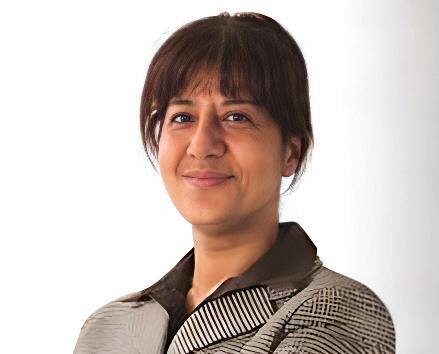
Climate risk and conveyancing practice note consultation
TLS is consulting on its landmark climate change guidance to get input from as many members as possible to help ensure the proposed practice note reflects real-world issues and provides practical details for conveyancers on:
• How climate change and its associated risks are impacting the UK’s property stock.
• Understanding solicitor duties related to climate risk and liability.
• Communicating climaterisks to clients, lenders, and other stakeholders.
• Navigating climate-related searches and advising clients on how to act on the results.
The consultation closes on Thursday 31 October.
There will be a panel discussion about the proposed practice note at TLS’s Property Conference on Wednesday 16 October.
Further reading: https://www.lawsociety.org.uk/topics/climate-change/ climate-risk-and-conveyancing
TLS welcomes feedback from you and I would like to hear from you about anything you may wish to share concerning your professional needs. Please contact me at https://www.lawsociety.org.uk/about-us/ our-governance/council-constituencies-and-current-members/shamagupta
https://www.lawsociety.org.uk/events/products/law-society-propertyconference-2024
Don’t forget to update your personal information on My LS.
Shama Gupta Law Society (TLS) Council Member


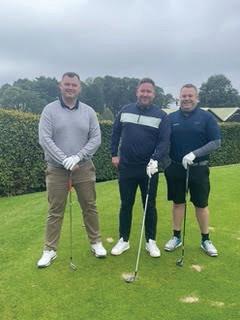

Lovedays Solicitors has become the latest to join Oberoi Business Hub’s expanding law firm client portfolio.
The growing firm has offices in Matlock, Bakewell, Wirksworth and, more recently, with Brooke-Taylors in Buxton and has appointed Oberoi Business Hub to handle their busy call handling function.
Oberoi Business Hub is this year’s gold sponsor of Derby and District Law Society (DDLS). As part of their sponsorship, the Hub is keen to further strengthen relationships with local law firms, many of whom already benefit from high quality services including call handling and conference and meeting room facilities as well as serviced offices.
The Pride Park-based Oberoi call handling team are ensuring that all incoming calls are answered quickly and professionally. Their service includes 24/7 and online live chat support as well as regular management reports to monitor the nature of incoming calls and the response efficiency.
Lovedays Solicitors’ managing director Richard Roberts explained: “As a firm we pride ourselves on face to face personal service and
decided to outsource call handling some time ago to enable our reception teams to focus on clients coming into the offices rather than their attention being diverted elsewhere.
“Keen to use a local firm, we recently moved this important function from a national provider to Oberoi Business Hub where we now receive a far superior quality and more cost-effective service.
“Investment in marketing is pointless if you cannot maintain consistently high levels of customer service, including ensuring that every call is answered quickly and efficiency.
“Having a dedicated call handling service provided by a professionally-trained team is therefore vital in this day and age and the move to Oberoi Business Hub has been seamless with results proved from day one.”
Oberoi Business Hub manager Jodie Brady continued: “Whatever our clients’ requirements, our call handling services are designed to be cost effective and flexible.
“Our highly-trained team essentially become part of the customer’s in-house team. They ensure client communications are handling efficiently and professionally – creating the right
first impression on behalf of our customers and relieving the pressure on individuals to be able to concentrate on their workload without interruption.”
Founder and managing director Kavita Oberoi OBE concluded: “Lovedays Solicitors are very clear about the service they require and we were able to prove how our structured and professional approach stands up to stringent monitoring and evaluation.
“We have many years’ experience working with law firms both through our serviced office network and with back-office services including call handling and are delighted to welcome Lovedays to the growing Oberoi Business Hub community.”
https://www.oberoibusinesshub.co.uk/ ; https:// www.lovedays-solicitors.co.uk/

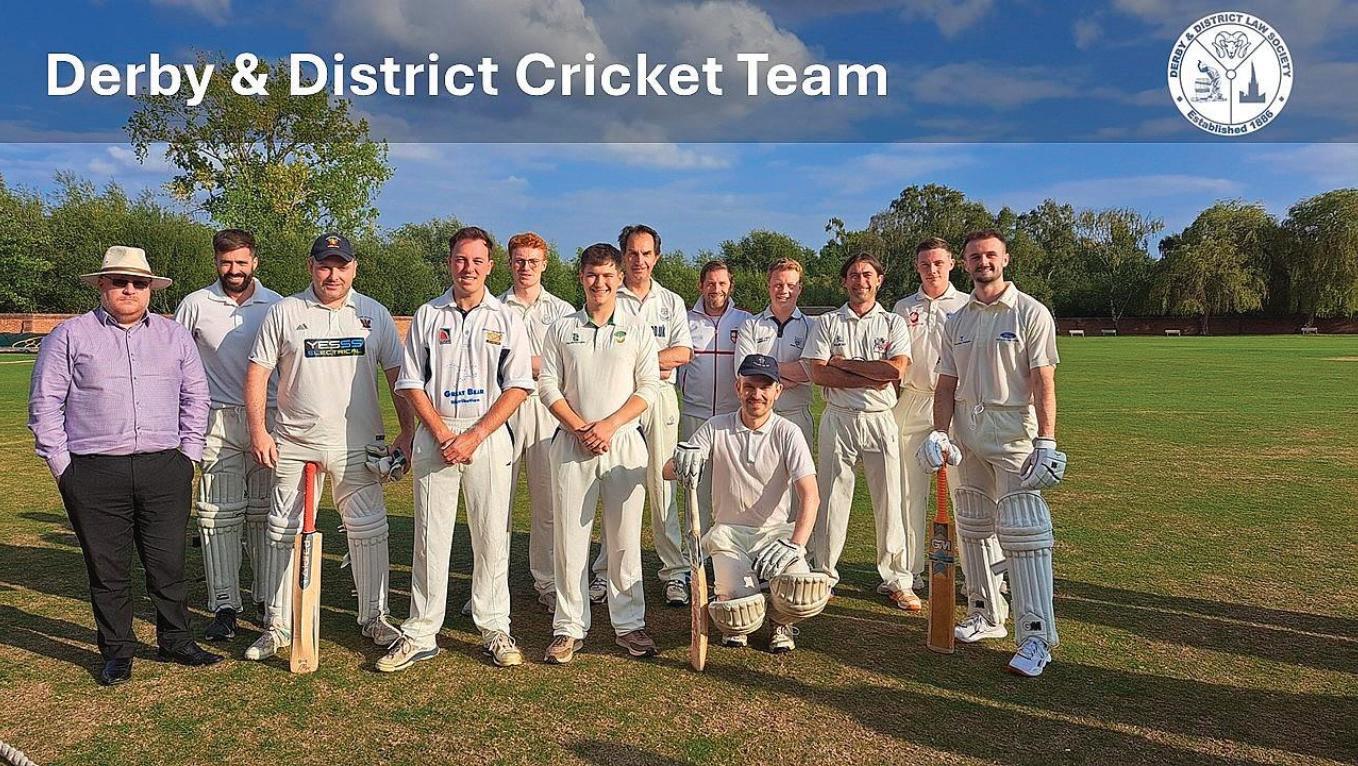
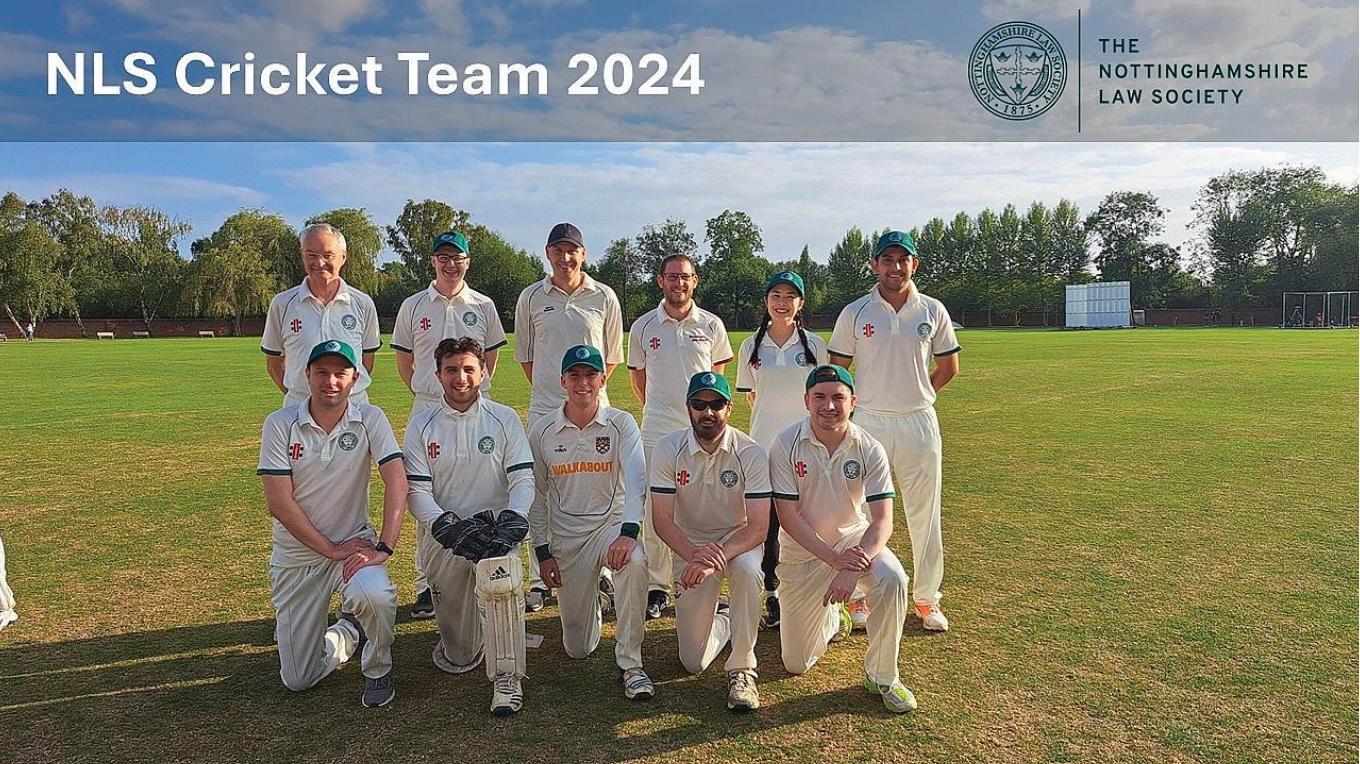
On the 29th of August, amidst the beautiful setting of Attenborough Cricket Club, two teams gathered to compete for the prestigious Cricket Shield in what was known as the ‘Battle of the A52’. The teams in question were made up of solicitors hailing from Nottinghamshire Law Society and Derby & District Law Society.
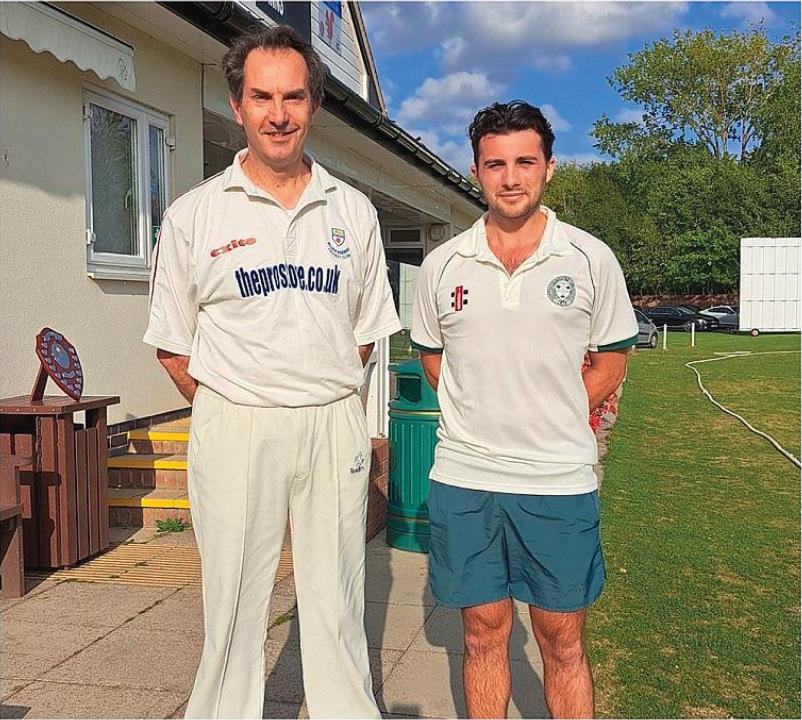
Under the leadership of team Captains Aaron Singh (NLS) and Philip Bramall (DDS), the stage was set for an intense showdown.
James Sookias, a talented batsman, stood in for Aaron during the coin toss, which was won by Derby & District, leading them to choose to bat first.
Peter Kidd and Matt Holtam took the first turn to bat, facing Philip Cordery’s initial delivery. Unfortunately, Matt Holtam was dismissed without scoring (golden duck) in his first attempt, making way for Tom Glennister Glenister. However, NLS’s fielding was strong, and Tom was quickly caught by the wicket keeper, James Sookias.
Following them, George Domleo and Mark Wilcock stepped up to the crease, with the score standing at 9 runs after 4 overs, having lost 3 wickets. As Alastair Rose and Alex Lucas took over the bowling duties for Derby & District, the DDS team started building momentum. Domleo and Wilcock showcased impressive batting skills, accumulating a total of 38 runs in 6 overs while losing 3 wickets.
In the seventh over, a change in bowling end
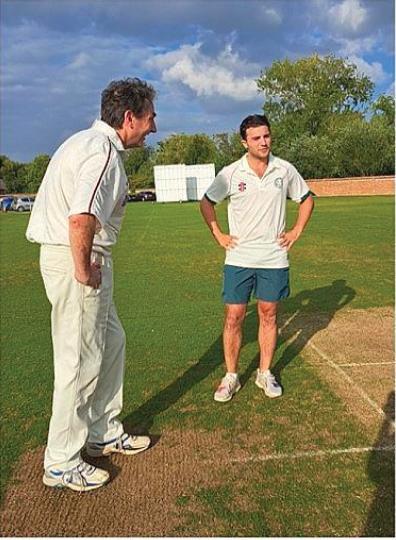
brought NLS’s Vikky Lai into the attack. Her first delivery led to the dismissal of Mark Wilcock, sparking celebrations among NLS players and spectators who lifted Vikky in the air amidst cheers.
George Neville and Vikky Lai showcased impressive bowling skills, leading to the retirement of Domleo at 30 runs. George Ottewell, taking over from Wilcock, hits a six in his first at-bat, bringing the DDS team to 53 runs after 9 overs and 5 wickets. James Gray replaces Domleo and starts scoring well.
The NLS team faces the challenge of displaying their fielding abilities due to the excellent batting performance. Captain Aaron Singh demonstrates fantastic catching skills, resulting in another player caught out. Ottewell is caught out, and Mitch Palmer takes the field on the sunlit cricket ground. Derby & District’s score stands at 69 runs after 10 overs and 6 wickets.
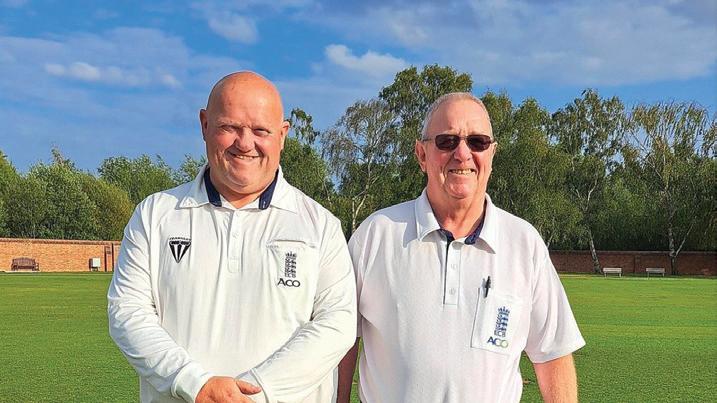
Gray remains consistent in bolstering the score, but eventually, Palmer is snared by wicket-keeper James Sookias. With a handful of overs remaining, the onus falls on Gray and newcomer Liam Wicks to set the benchmark that NLS needs to surpass to recapture the
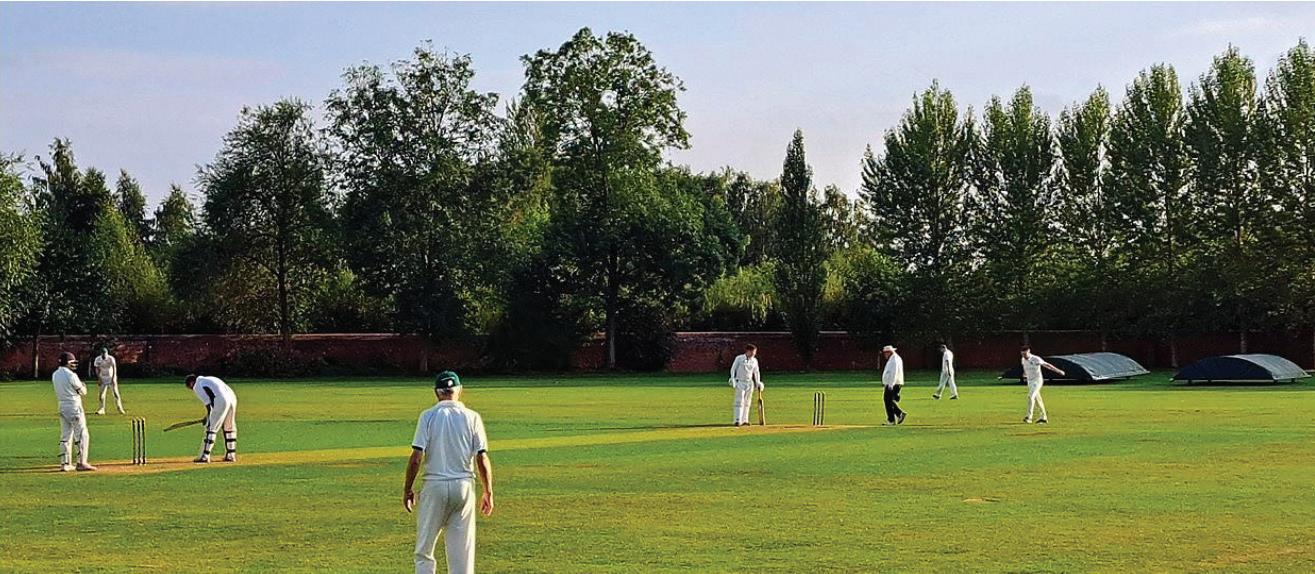
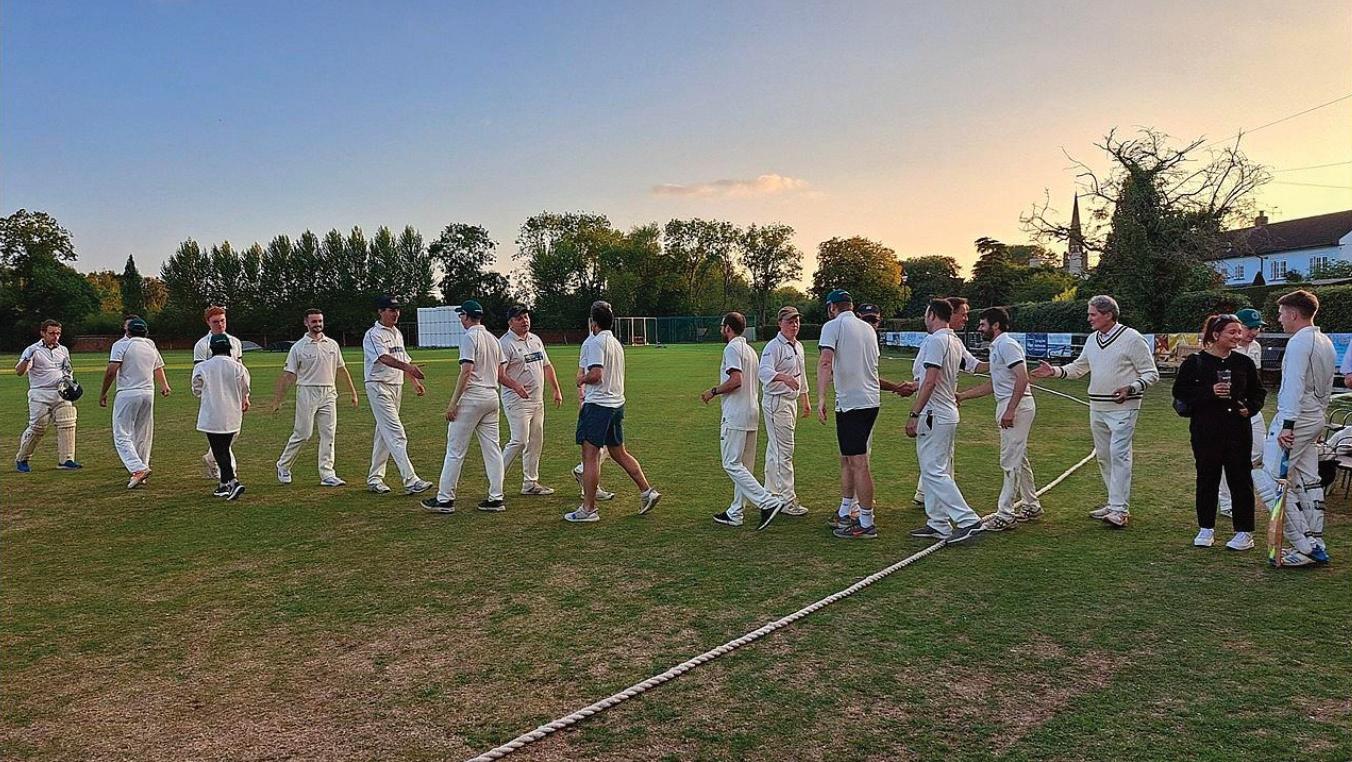
esteemed shield. However, Wicks is ousted swiftly, leaving the responsibilities to DDS Captain Philip Bramall to wield the bat and conclude the remaining overs in tandem with Gray. Together, Aaron Singh and Ben Burton faced the bowlers, leading the Derby & District team to a final score of 99 runs after 13 overs with 8 wickets lost.
Opening the innings for NLS are teammates James Sookias and Martin Foulds, with Sookias showcasing excellent batting skills by scoring a series of four runs. Mitch Palmer and Matthew Holtham are the bowlers for DDS, and within the first over, the score stands at 15 runs with no wickets lost.
Foulds is dismissed at 22 runs in the initial over, making way for team Captain Singh. The partnership between Sookias and Singh sees the runs steadily increasing, displaying top-notch batting performances. Sookias
eventually retires after scoring 30 runs, leaving the total at 38 runs for 1 over and 1 wicket down.
The batting prowess is evident as two balls hit by Sookias and Singh come dangerously close to NLS Head of Operations, Michelle Foster. Fortunately, the protective glass screen prevents any mishaps, although onlookers witness Michelle swiftly moving out of harm’s way.
Furthermore, it is worth mentioning that during Sookias’ final bat, where he hits a spectacular 6, the cricket ball’s impact is felt even by the club’s BBQ.
Captain Bramall led DDS team by taking charge of the bowling as the NLS team reached 44 runs in 4 overs with 1 wicket down. With such a strong performance, it seemed like the NLS team had a good chance of winning the game. However, things took a turn when Sookias
retired and Jak Ward came in but got caught out at 49 runs in 5 overs with 2 wickets down. John Hooper then joined the game as the sun began to set on the cricket pitch.
In the seventh over, Singh and Hooper were still at the crease facing Domleo’s bowling. The game progressed to 69 runs in 8 overs with 2 wickets down. Meanwhile, there was a bit of action on the field as DDS fielder Mark Wilcock injured his finger while catching a ball. He had to leave the ground for treatment, accompanied by Ottewell.
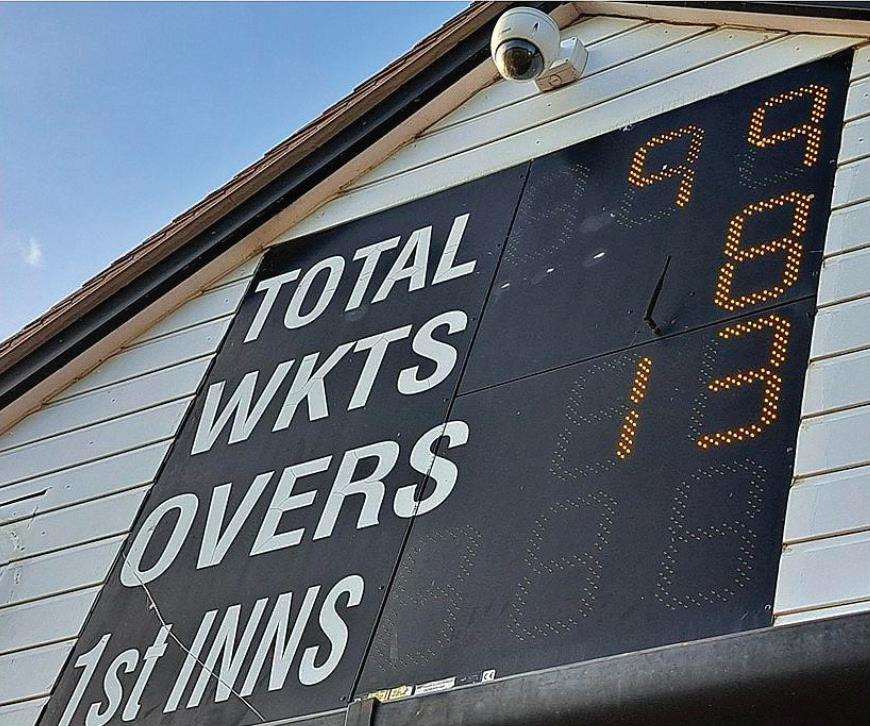
Singh retired after scoring 30 runs, and Joshua Ganley took his place to continue batting with Hooper, who was eventually bowled out. Liam Wilkinson came in as the sixth batsman with Joseph Arcari Arcari bowling, and soon the game came to an end. NLS managed to score 103 runs in 11 overs with only 3 wickets down, securing the trophy for Nottinghamshire.
After the game, the teams gathered in the clubhouse for some refreshments and cricket tea provided by David Williams. Michelle Foster, the Head of Operations,
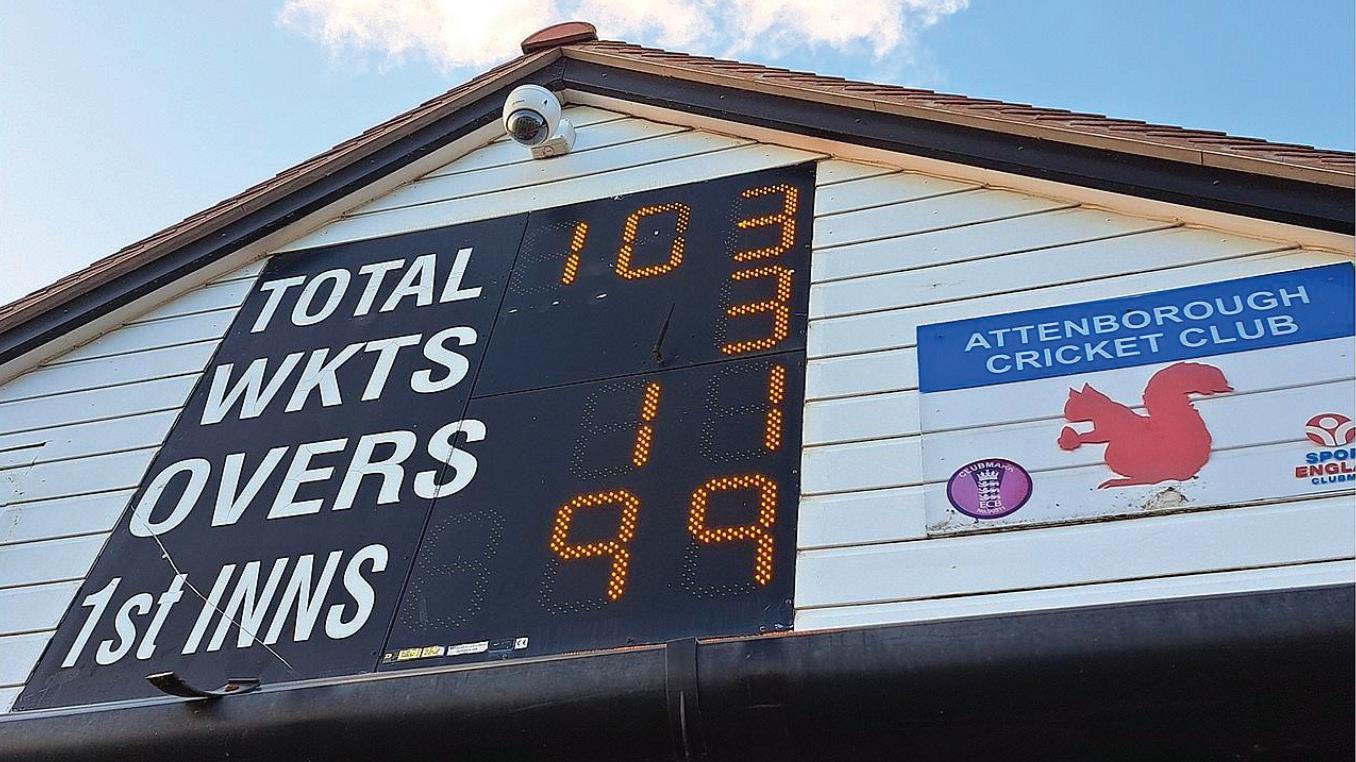
expressed gratitude to everyone for their participation, the use of the beautiful cricket grounds, the official umpires Paul Westbury and Nick Sanders, and David Williams for the delicious tea and sandwiches. The trophy was handed over to DDS Captain Philip Bramall to present back to NLS Captain Aaron Singh. Both Captains thanked their players and supporters for their backing.
It was indeed a fantastic evening of cricket filled with sportsmanship and camaraderie. Looking forward to seeing everyone again next year as the trophy heads to the engravers.
Michelle Foster

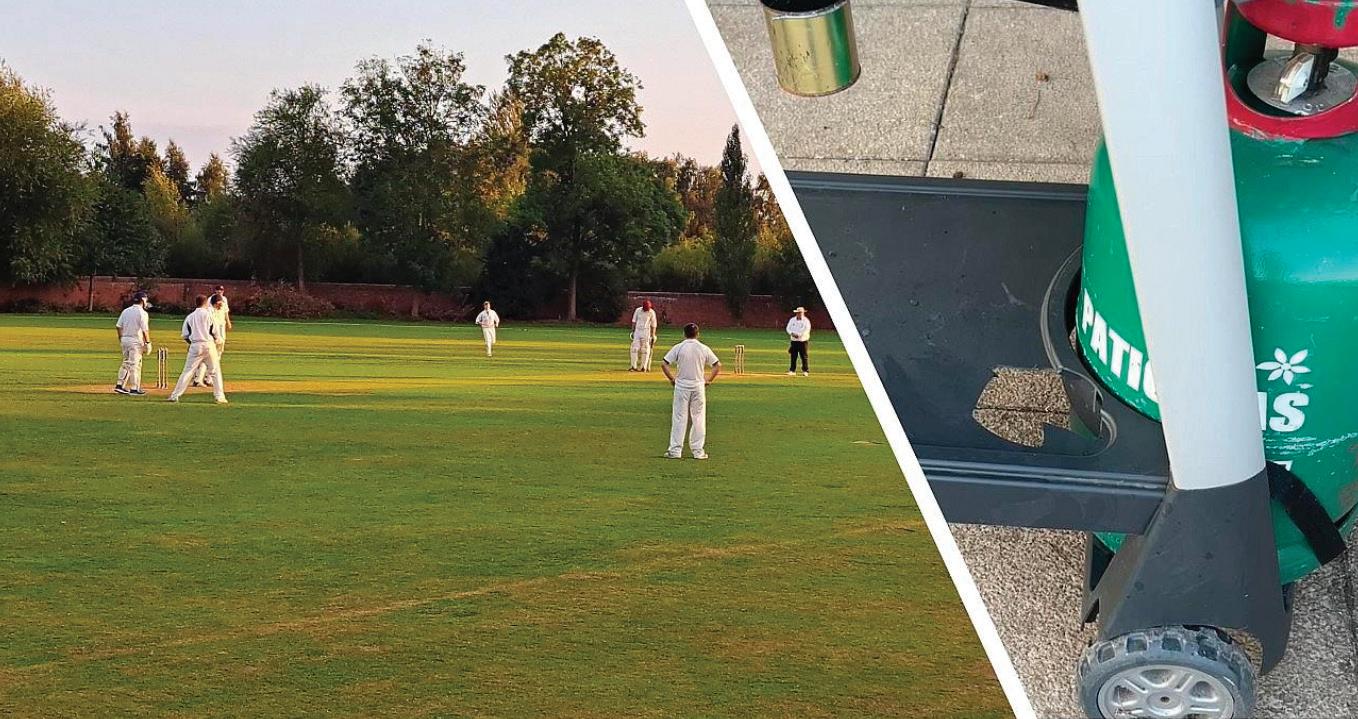

Captain: Aaron Singh
George Neville
Vikky Lai
Alastair Rose
Philip Cordery
John Hooper
Martin Foulds
Ben Burton
Alex Lucas
Joshua Ganley
James Sookias
Liam Wilkinson
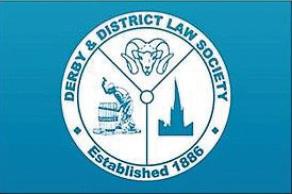
Captain: Philip Bramall
James Gray
Martin Salt
Joseph Arcari
Peter Kidd
George Ottewell
Tom Glennister
Matt Holtam
George Domleo
Mark Wilcock
Liam Wicks
Mitch Palmer
Richard Woodward
John Ellis


Conveyancers from various member firms are reporting that they have had a busy summer period. It seems that concerns regarding possible tax rises in the budget in October seems to spurring some property owners to sell their property.
In August, Bell Howley and Perrotton kindly delivered a very informative session on Stamp Duty Land Tax. Attendees from member firms were updated on the current Stamp Duty rules but also provided very useful guidance on ‘red flags’ and the limitations on our role as conveyancers in relation to the tax advice. With thanks to Nelsons for allowing us to use your facilities for this event.
At the end of August, we also saw Derby and District Law Society hosting a Cake, Conveyancing and Connections event which saw property lawyers and local businesses coming together and enjoy some networking and delicious cake. It was a great success and a great opportunity to catch up with some conveyancers and share experiences but also make new contacts. A huge thanks to The Search Bureau for kindly sponsoring this event.
A few other updates to make note of:
• The Land Registry have announced that they will be increasing their fees from 9 December 2024.
• The Law Society consultation relating to the new edition of the TA6. We await feedback following the consultation.
• The Law Society have also announced a consultation relating to Climate Change guidance.
If you are involved in any other the consultations please do get in touch.
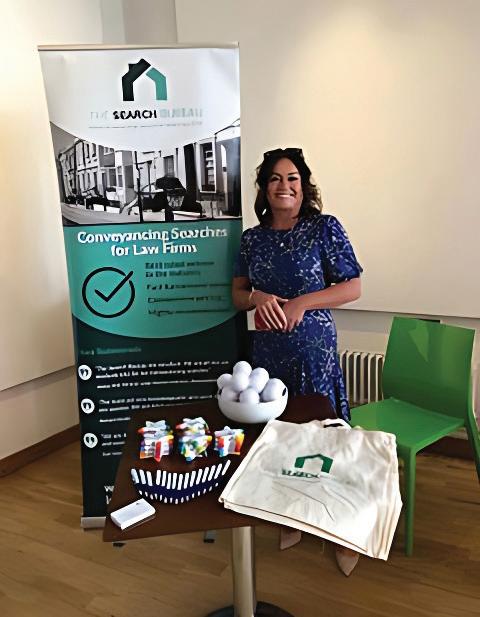
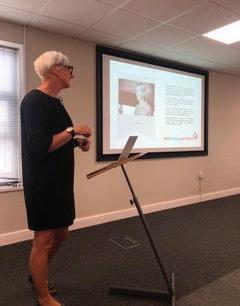
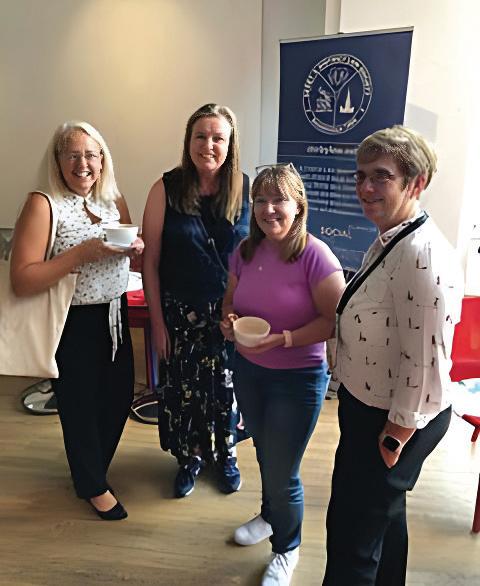
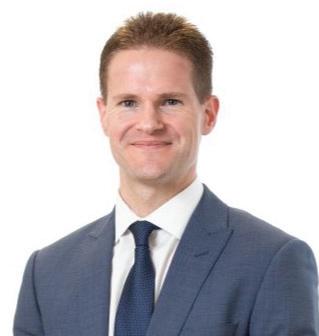
Meridian Private Client Solicitors is a specialist private client law firm based in the Midlands. With a team of over forty, Meridian is one of the largest private client practices in the region.
Edward Jones , Senior Associate, is a member of the Estate Planning Team, which focuses on non-contentious private client work, including Wills, trusts, IHT planning, estate administration and probate matters, often involving large and complex estates.
He explains: “The estates we administer are often complex for various reasons, which includes geography, with assets in multiple cross-border jurisdictions, and also in terms the different tax regimes in play, as well as the interactions with existing trust structures. The assets involved can sometimes be very valuable, such as large landed estates, significant business interests, or luxury cars and multi-million pound art and antique collections.
With these factors at play the levels of complexity can multiply, but so can the opportunity to mitigate tax through claiming different available tax reliefs, for example where business or farming assets are involved.
“Many of these estates are for high-net worth individuals, worth between £1 - 50 million, but we also assist clients with lower-value estates, where the complexity may arise from unusual circumstances, or where the estate needs to be administered following the resolution of (or during) a dispute. One of the Partners from our team can act as an independent administrator in these circumstances. We are often referred
estates from other law firms, where their clients may need help in dealing with a particular element, or because they feel they do not have the necessary knowledge and experience to do so themselves.
“Fundamentally the law and good practice remain the same regardless of the size of an estate. However, larger estates can be more complex because often they include more assets, of a higher value, and may involve more beneficiaries and other parties, such as other professional advisors. With higher values involved the exposure to tax can also increase (and with this risk) so having the knowledge and experience to claim all available reliefs is very important.
“There may also be cross-border elements to consider. Holiday homes in Europe, or investments overseas are common. Care needs to be taken in correctly determining which law applies, and we may need to liaise with overseas lawyers and other professionals to deal with different tax regimes, and claim any reliefs from HMRC to prevent double-taxation.
“One of the first steps in the administration of an estate is to establish all the assets and liabilities. Often we have a good idea of what is included, but we do also use Estatesearch’s Financial Profile search to either verify what we know, or to check that there are no unknown additional assets or liabilities.
“Estatesearch automatically contacts over 400 financial institutions on our behalf to check if accounts are held. The team there also establishes if an individual is a company director and we can use their secure portal to place Trustee Notices too. We also order overseas bankruptcy checks through Estatesearch which are essential when a beneficiary lives abroad and we need to check the position before distributing any funds.
“In one recent case, an asset search revealed an additional, previously unknown account, held in a different arm of one financial institution and containing over £30,000. This was a significant sum, and not only was it worth undertaking the search, but importantly it protected our client as the Executor, ensuring that they had undertaken their duty to deal with all assets of the deceased.
“With the increase in online banking, sometimes we have less initial paperwork
to go on than we’d like, and this is where an Estatesearch asset search comes into its own, confirming which institutions hold accounts in order that we can make further enquiries to establish precisely what is held.
“An online portal makes it easy to order in one place, and from a client perspective it is very helpful to know the costs of searches up front. The customer services team at Estatesearch is also on hand to answer any questions if we have more unusual queries too.
“As a firm, our approach is to ensure that no stone is left unturned. We focus solely on private client work, which means that we have particular expertise in this area, and we can really add value for our clients.
“We think of a complex case as the “hub” of a wheel, having “spokes” which go off in many different directions, and we work as a team to bring all those different elements together, from advising the executors and trustees, dealing with the taxes involved, drafting the probate and other necessary legal paperwork, to working with lawyers overseas, as well as other professionals including accountants, financial advisors and surveyors.
“We often effectively “project manage” estates, and keeping focus and momentum at all times is very important. As the size of an estate increases so does the risk of something going wrong, including the potential to miss tax or compliance deadlines, or overlook recent changes in legalisation.
“We offer a bespoke service to clients and like to meet and discuss their requirements in the first instance. Our flexible, client-focused approach means we can add as much value as possible through our expert services.”
For further information about Meridian Private Client Solicitors please see: https:// meridianprivateclient.co.uk
For further information about Estatesearch please see: https://www.estatesearch.co.uk/
In this article, Dr Giles Proctor, CEO of The College of Legal Practice, explains why he believes Graduate Solicitor Apprenticeship (GSA) Programmes can give both employers and individuals the best possible opportunities to help employees qualify via the SQE route.

What is a GSA?
Many people have heard of 6-year solicitor apprenticeships, well the GSA is a graduate entry solicitor apprenticeship programme that trains apprentices to pass the SQE1 and SQE2 whilst also producing the workplace evidence portfolio that meets Qualifying Work Experience (QWE) requirements. Solicitor apprenticeship programmes end with the SQE2 assessment and provide a qualification route to becoming a solicitor. There are programmes available for law and non-law graduates.
Here at The College of Legal Practice, we are starting to see firms include graduate solicitor apprenticeship programmes within their early careers training portfolios, and guess what? We think that these apprentices have a very strong chance of passing the SQE first time around.
We see the GSA as a unique collaboration between a higher education provider and a legal services organisation. We work closely with our client firms on their programmes and we are finding that there are some key differences with this programme and SQE preparation courses that greatly benefit both the individuals and the employer.
SQE funding for you, the employer
As you might be aware, large employers can draw down 100% of the funding for the GSA
through the Apprenticeship Levy, making this an efficient and sustainable way to bring in future solicitors. This funding channel is unique and can be put towards the full apprenticeship programme costs that includes training, coaching and SQE1 & 2 assessment costs, including one re-sit for SQE1.
If you are a smaller employer, good news, you can receive up to 95% of your apprenticeship programme costs from the government, if you are ineligible to pay the Levy.
Increased likelihood of passing the SQE and qualifying in two years
We are seeing in our student cohort, that those are preparing for longer for the SQE are getting better results. It is no surprise that taking a 40-week course generates better outcomes than studying over 13 weeks.
In the GSA programme, the candidates have a structured learning pathway towards taking the SQE exams. Whilst they are training, in addition to personal supervision, they receive discrete coaching to support their progression. This pathway works brilliantly to ensure aspiring lawyers gain all the necessary preparation, skills and qualifications to become a fully qualified solicitor. In addition, unlike SQE preparation courses, engagement with the programme is mandatory for apprentices, monitored by Ofsted.
The GSA, unlike the 6-year programme, is for graduates only who have already spent time in the higher education system and are exploring their career ambitions. When you run your GSA application process, it is set up much like a training contract process, with rigorous interviews and clear expectations for employment, training and progression. Alongside being a stable point in a person’s career journey, the GSA has the benefit of extensive support to limit the chance of apprentices dropping out due to personal challenges. The 1-2-1 coaching provided allows the needs of students to be addressed at the earliest stage possible and the prerequisite support put in place swiftly.
You can help achieve your firm’s social mobility objectives through the introduction of Graduate Solicitor Apprenticeships. For many students, who are the first in their family
to get a degree, let alone enter this rigorous profession, we hope that having a clear and funded structure to progress will be the difference between pursuing their goals and not. This has a knock-on effect for employers, leading to increased social mobility, a more diverse workforce and eventually a pool of future solicitors that better represent the society they serve. The GSA also offers a fantastic opportunity for internal progression, with paralegals and legal executives using the GSA as a structured pathway to qualification.
Focus on delivering value for your clients
Traditional apprenticeship schemes take apprentices out of the workplace for a day a week, impacting on client delivery. With The College of Legal Practice’s programmes, apprentices can study virtually and flexibly, allowing them to focus on their work responsibilities and demands alongside their study. This approach also avoids the need for travel time and costs and give apprentices options for study outside core working hours if needed.
So, at the College, we believe the Graduate Solicitor Apprenticeship is highly valuable for employers and offers the structure to help apprentices pass the SQE. It provides a robust launch pad to fully integrate apprentices into your workplace and ensures that they have individual support and coaching to become your next valued cohort of NQ solicitors.
You can find out more about Graduate Solicitors Apprenticeships at collegalpractice. com and you are welcome to get in touch using the QR code below or email at gproctor@ collegalpractice.com
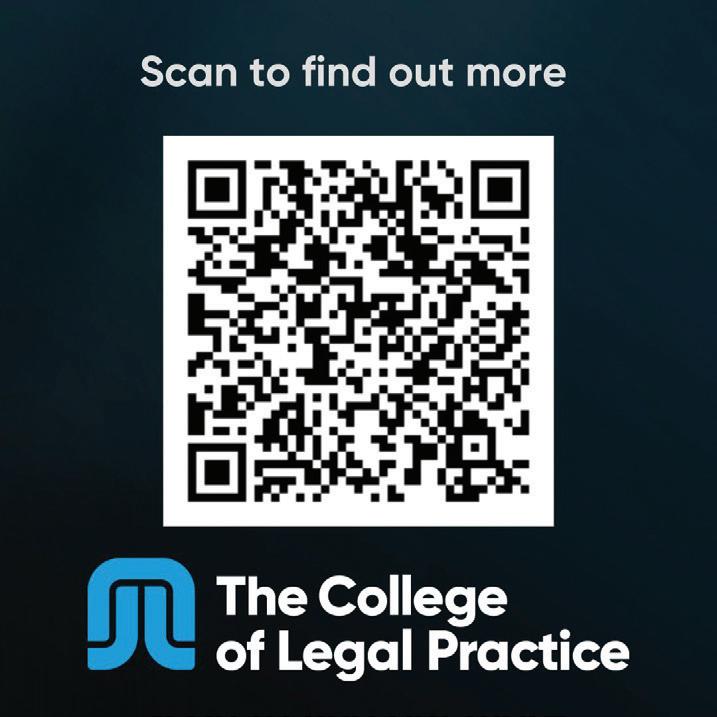
No inspection condition, no responsibility, no problem?
A few years ago, it was commonplace to have an inspection clause in every unoccupied property insurance policy requiring fortnightly or even weekly inspections of the property, inside and out.
Arranging weekly inspections was either expensive, engaging a local property agent or maintenance firm; or risky, cover relying on a family member arranging inspections and keeping records to evidence them.
More recently, a number of insurers have relaxed this requirement, much to the relief of the probate professional. Thirty day requirements are now commonplace. In fact, policies are also available with no formal inspection condition at all and seem to relieve the executor of any obligation – but to what extent is this really true?
Can a probate professional organise unoccupied property insurance and simply pass the responsibility to the insurer for anything that goes wrong?
Unfortunately, it’s not that simple.
Although the absence of a formal inspection warranty in a policy relieves the policyholder of a rigid ‘diary led’ inspection regime, there are other conditions which, if ignored can just as surely result in a claim being reduced or declined.
Just about every policy carries a written duty of care. Here you will find a written obligation to:
‘take all reasonable care to protect the property from, or to limit loss or damage’
If a maintenance issue has been left unresolved for several months and this is found to have contributed to a loss, an insurer would be within their rights to cite the above duty whilst declining to pay for damage.
A typical unoccupied property insurance policy will exclude any loss or damage which pre-dates the policy being in force.
If no initial inspection has been carried out,
long-standing issues might go un-noticed which may later lead to a severe loss. Your insurer will have little hesitation in evidencing the long-term nature of the cause.
Also, your policy will exclude any loss or damage which has occurred (even in part) through inadequate maintenance or wear and tear.
This is a particularly a wide-ranging statement (common to most policies), which can be used to decline or reduce payment in a great variety of situations, unless the insurer is provided with evidence that reasonable care has been taken to ensure the property is maintained in good condition.
A grim example – elements taken from a variety of real events.
Your client’s roof collapses or is torn off during bad weather. You register a claim, confident the insurer will pay for repairs.
No other building in the street was damaged. The loss adjuster investigates further.
The garden is overgrown, the wall and some of the roof being covered by thick ivy which had dislodged and loosened gutters and slates, letting in moisture which has caused timbers to rot.
The slates, their bond with the ivy stronger than that with the roof, have ended up in the garden. The long-term effects of dampness in the roof timbers is evident.
The claim is successfully turned down.
Many insurers have a written definition of what constitutes storm conditions. Remember, a well-maintained property should be able to withstand all but extreme weather.
Advice? Arrange regular inspections on every property.
In the above example, regular maintenance of the property and grounds may have provided a very different outcome. The claim may have been successful. The damage might never have occurred in the first place.
Even with no formal inspection condition, regular inspections will reduce the likelihood of damage, as well as assist with evidence to support a valid claim.
At every inspection:
• Maintenance of the garden should be viewed as an investment rather than a cost, protecting the property from damage from vegetation, reducing the risk of burglary, vandalism, damage by animals, and maintaining the property value.
• Check roof for signs of damage, slipped tiles, excessive moss growth or weeds, cracked cement etc.
• Check gutters, downpipes and drains are clear. Blockages or growth in gutters can cause damp and water ingress.
• Blocked drains can cause flooding.
• Check flat roof areas for signs of damage or weakness. A felt flat roof has a limited lifespan, anything more than 12 years old is likely to be severely weakened and in need of replacement.
• Check windows, doors and frames for signs of rot or weathering.
• Check that the stopcock is operating properly, check taps, pipes and radiators for signs of leaks or drips.
• Check pipes in loft areas. If you have water pipes in the roof space, open the loft hatch by 12 inches to allow warm air to circulate in the loft.
Colin Bickers is a Director of Bickers Insurance Services, specialists in unoccupied property insurance for probate and householders in care. This general risk management advice should not be considered exhaustive, nor suitable for every property.

Bickers Insurance Services is a trading name of Bickers Insurance Services Limited. Authorised and regulated by the Financial Conduct Authority. Registered in England and Wales Reg No.08432640.

A new report from Remember A Charity launched on 28th August 2024, exploring the opportunity for wealth advisers to play a more active role in helping clients achieve their philanthropic goals through a charitable legacy. Looking at the benefits of engaging clients in meaningful discussions around charitable bequests, the report also highlights the potential for working more closely with charities to co-create philanthropic journeys for clients.
Understanding the role of wealth advisers in growing legacy giving was developed in partnership with Boon Philanthropy Consulting and with support from Philanthropy Impact. It draws from research gathered from interviews and focus groups with around 40 advisers, including wealth managers, private bankers, tax consultants, philanthropy consultants, and solicitors, it also incorporates insights from fundraisers, featuring case studies of high value legacy gifts.
The report highlights the importance of the high value legacy giving market for charities across the UK, and the scope for growth. While fewer than 1% of charitable estates in recent years have included gifts of over £500,000, data from Smee & Ford indicates that these donations generate more than one quarter of the sector’s legacy income (26%)*. Based on the current UK legacy market value, this equates to around £1 billion annually, funding vital services for beneficiaries across the country.**
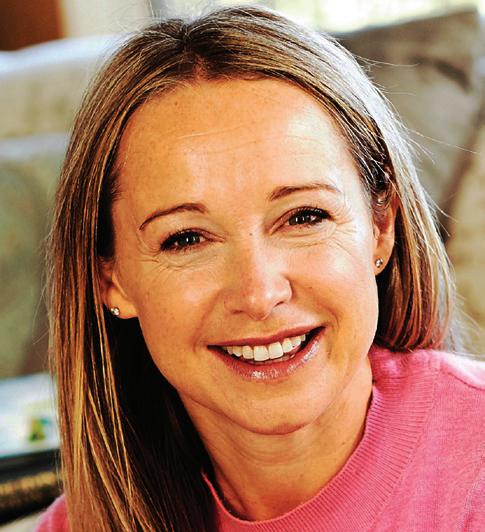

Commenting on the potential for growth, Lucinda Frostick, Director of Remember A Charity, said:
“Even a small increase in high value legacy gifts could significantly enhance UK charities’ long-term funding, while enabling high net worth individuals to achieve their philanthropic goals and vision. Wealth advisers are uniquely positioned to accelerate this growth. By working collaboratively, charities and wealth advisers could unlock invaluable philanthropic potential.”
Sianne Haldane, founder of Boon Philanthropy Consulting, said:
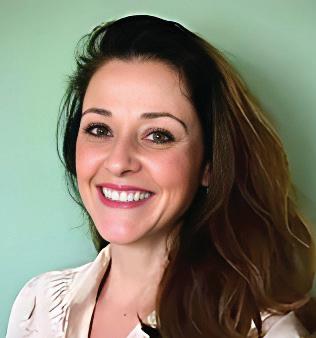
“The opportunities that exist around growing high value legacy giving are really exciting. They provide not only transformational possibilities for charities that receive them, but central to these gifts are enhanced relationships with the donors who leave these gifts. For advisers, talking about values and legacy with clients gives them a deeper understanding of their clients’ overall goals...it truly is a win win win for all.”
While private client solicitors are often well versed with charitable legacies, the report emphasises the opportunity for a broader range of wealth advisers to play a more active role. It highlights five key findings:
1. The power of values-led conversations: Clients are increasingly seeking advice that aligns with their values and ethical considerations as well as their monetary goals. Wealth advisers can deepen relationships and trust by incorporating discussions about charitable intentions with their clients.
2. Seeding the idea of charitable legacies: Advisers are well-placed to initiate conversations about legacy gifts during key life stages, offering clients the opportunity to align their estate plans with philanthropic aims while exploring potential fiscal benefits.
3. An appetite for specialist knowledge: Advisers express a need for more knowledge and support in raising legacy conversations with their clients. They want to better understand how legacy gifts can be structured and how they can help clients realise their own charitable goals.
4. Legacy giving can play a key role in the philanthropic journey: The decision to leave a charitable legacy can be a catalyst that inspires future giving. Advisers recognise that discussing the causes that matter most to clients can strengthen the adviserclient relationship, as well as help clients approach subsequent philanthropic and investment decisions.
5. The need for a more holistic and collaborative approach: Impact is a key driver for high net worth individuals. They expect to have choice and agency, and be well stewarded – by advisers and charities alike. There is scope for charities to work more collaboratively with advisers, supporting them in co-creating philanthropic journeys and experiences.
Continues on page 24

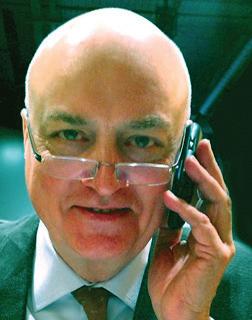
One adviser commented:
“When a client feels passionately about giving something back, it is very humbling to be entrusted with the responsibility to ensure their legacy makes a positive difference to causes that are close to their hearts.”
John Pepin, CEO of Philanthropy Impact, said:
“At Philanthropy Impact, we believe that wealth advisers are at the forefront of a transformative movement in values-based impact investing and philanthropic giving, including in legacy giving. Their expert guidance can empower clients to make impactful decisions that resonate with their deepest values and aspirations.
“By fostering a more informed and integrated approach, we can ensure that high value legacies contribute significantly to societal advancement and create lasting change.”
The report is available to download from Remember A Charity’s


website.*** Additional web-based content and assets have been developed to inspire, educate and equip wealth advisers for discussing legacy giving with their clients.
Rachel Steeden, Head of Legal at Stewardship, comments:
“The report is packed with useful insights to encourage mutually beneficial conversations between advisers, clients and charities. It covers the wide range of legacy structures available, including the highly practical and flexible Donor Advised Fund model.”
* Source: Smee & Ford, analysis of charitable estates 2016-2022
** Thanks to charitable gifts in Wills, 6 in 10 lifeboat launches are made possible through the RNLI, thousands of people receive end-of-life care through Marie Curie and an increasing number of locally-based charities can deliver vital services in the community.
***https://www.rememberacharity.org.uk/about-us/forwealth-advisers/the-role-of-wealth-advisers-report/

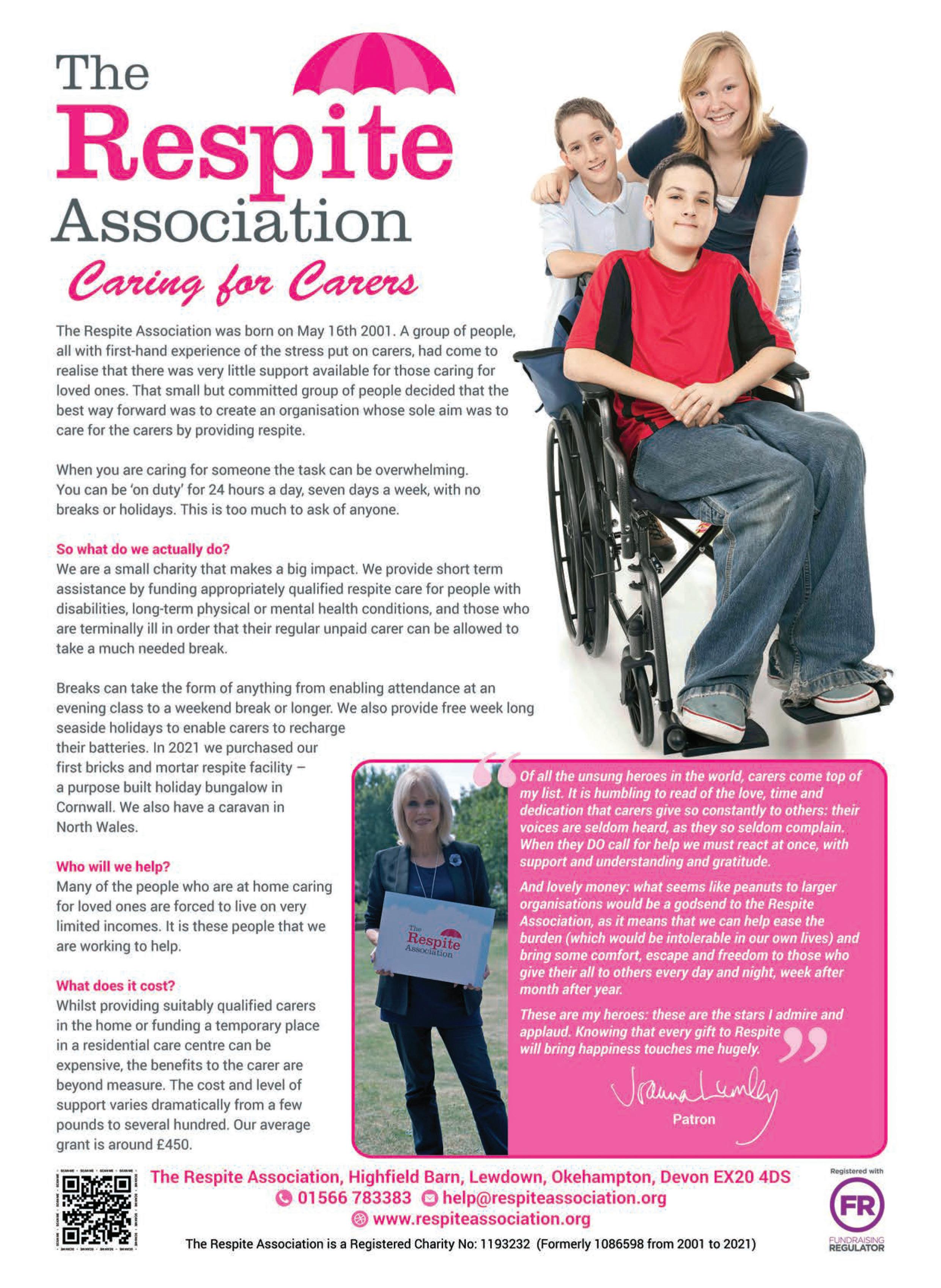
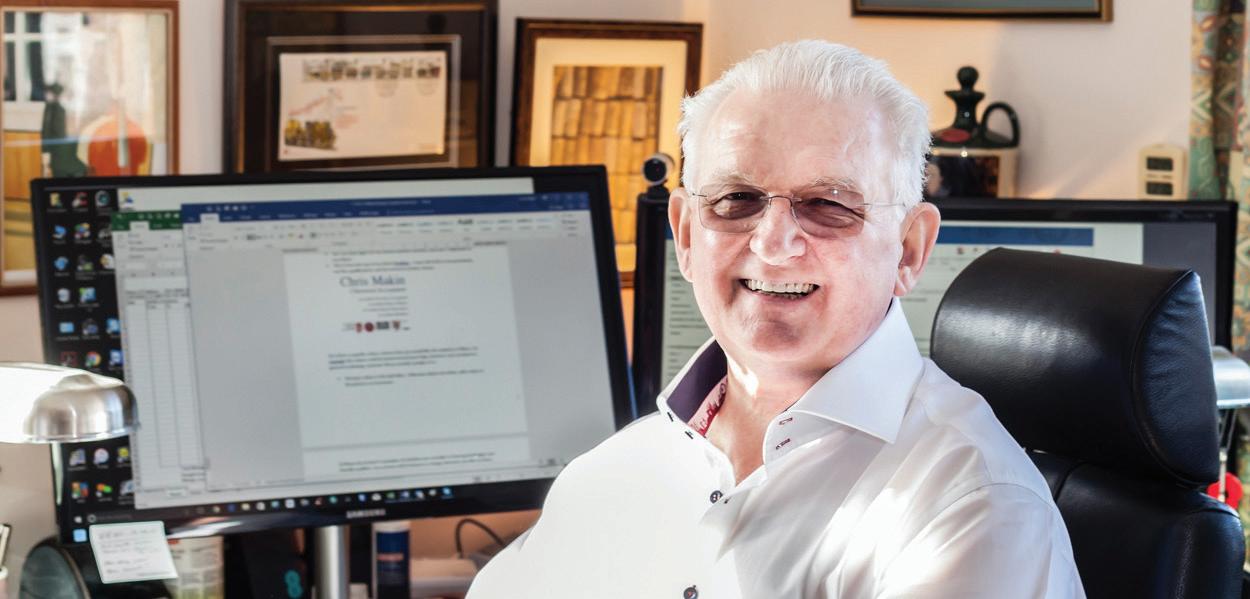
My loyal readers will know that I often bang on about incompetent experts. There is a treasure-trove of articles on the shocking failure of some experts, in my blog https:// chrismakin.co.uk/blog/. But we should also be alert to the blame which should attach to solicitors who get it wrong. Most expert witnesses are not full-time experts; indeed, many believe that a witness cannot have current expertise sufficient to give expert evidence if he is not active in his main profession. And I have spoken before about the need for those who wish to give expert evidence to learn how to do it properly. For an accountant, expert witness work is not merely a sexy infill between audits.
But for litigation solicitors there is no excuse. Their main profession is litigation, and they must know the rules and, of course, make sure that those they instruct as experts follow them, too.
I wrote recently about the case of Patricia Andrews & Ors -v- Kronospan Ltd [2022] EWHC 479 where an expert delivered a joint statement of experts to the court more than two years late. It emerged that he had conferred with his instructing solicitor some 69 times for help on drafting his joint statement. He should have known better. The judge decided that the expert had no regard for their independence. The report was withdrawn and the judge allowed another expert to be appointed. But the first expert had charged £225,000 which was wasted, and there would no doubt be a costs order against that party, too.
But what about the solicitor in all this? The expert should have known better than to turn repeatedly to the solicitor for help, but the solicitor should have known – must have known – that he should not reply when the expert asked. Who paid the £225,000 plus any costs
order I don’t know, but from what is reported it surely shouldn’t have been the client.
Now it’s happened again.
Glover -v- Fluid Structural Engineers & Technical Designers Ltd [2024] EWHC 1257 (TCC) was a case about damage to adjoining property, and it required expert engineers to find out what had happened, and assist the court to decide whose fault it was. The defendant became suspicions when the claimant’s expert appeared to have changed his opinions as the joint statement was being compiled. A series of questions were posed of the claimant solicitor, who gave assurances that nothing untoward had happened.
Then, when the claimant solicitor was asked whether any instructions had been given regarding the substance and the wording of the draft statement and whether the expert had been asked to change his opinion, there was no reply. This was highly suspicious.
The TCC Guide is quite specific about what help a solicitor may give to their expert in joint reports. Here is the relevant wording from paragraph 13.6.3:
Whilst the parties’ legal advisors may assist in identifying issues which the statement should address, those legal advisors must not be involved in either negotiating or drafting the experts’ joint statement. Legal advisors should only invite the experts to consider amending any draft joint statement in exceptional circumstances where there are serious concerns that the court may misunderstand or be misled by the terms of that joint statement. Any such concerns should be raised with all experts involved in the joint statement.
This could not be plainer. The lawyer must
not be involved in drafting or negotiating the experts’ joint statement. Only in exceptional circumstances where the court may misunderstand or be misled by the statement should they intervene, and even then, they must communicate with all the experts. Cosy chats between one lawyer and their expert is verboten!
So what happened? The claimant lawyer apologised to the defendant and to the court, accepted that permission to rely on their expert’s opinion be revoked, and asked permission for a new expert to be appointed. The judge allowed for a new expert, but only if the original trial date could be met.
But here’s the rub. The judge awarded costs thrown away on an indemnity basis and 30% of the costs of considering the new expert’s report and the joint report, again on an indemnity basis if not agreed. That would hurt.
There really cannot be any excuse if litigation lawyers don’t know the rules, or don’t follow them. The expert should never have asked for assistance in drafting the joint statement but, a fortiori, the lawyer should not have given that assistance. And, in line with my repeated entreaties, the lawyer should have chosen an expert who knew the rules and followed them.
Age old moral: choose your experts with care.
Biog: Chris Makin has practised as a forensic accountant and expert witness for 30 years, latterly as Head of Litigation Support at a national firm. He has given expert evidence about 100 times. He also performs expert determinations.
Chris is a fellow of the Institute of Chartered Accountants where he has served on the Forensic Committee, and as an ethical counsellor; he is a fellow of the Chartered Management Institute, a fellow of the Academy of Experts where he serves on the Investigations Committee, and a mediator accredited by the Chartered Arbitrators. He practises as a mediator, from his home in West Yorkshire and his rooms at 3 Gray’s Inn Square, London WC1R 5AH, telephone 020 7430 0333 He has mediated 100+ cases so far, on a huge range of subjects, with a settlement rate to date of 80%. For more see his website with videos: www.chrismakin.co.uk chris@chrismakin.co.uk
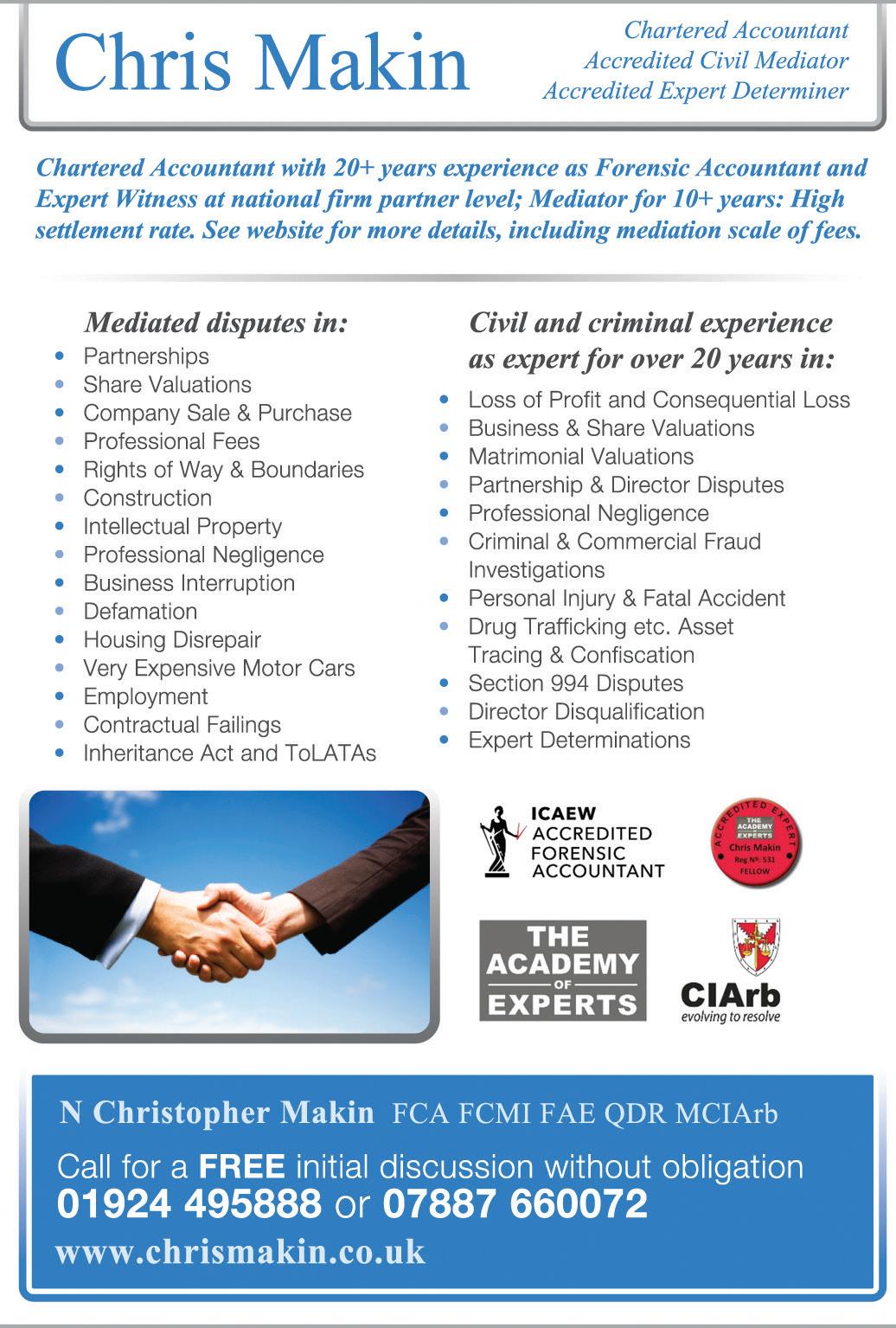
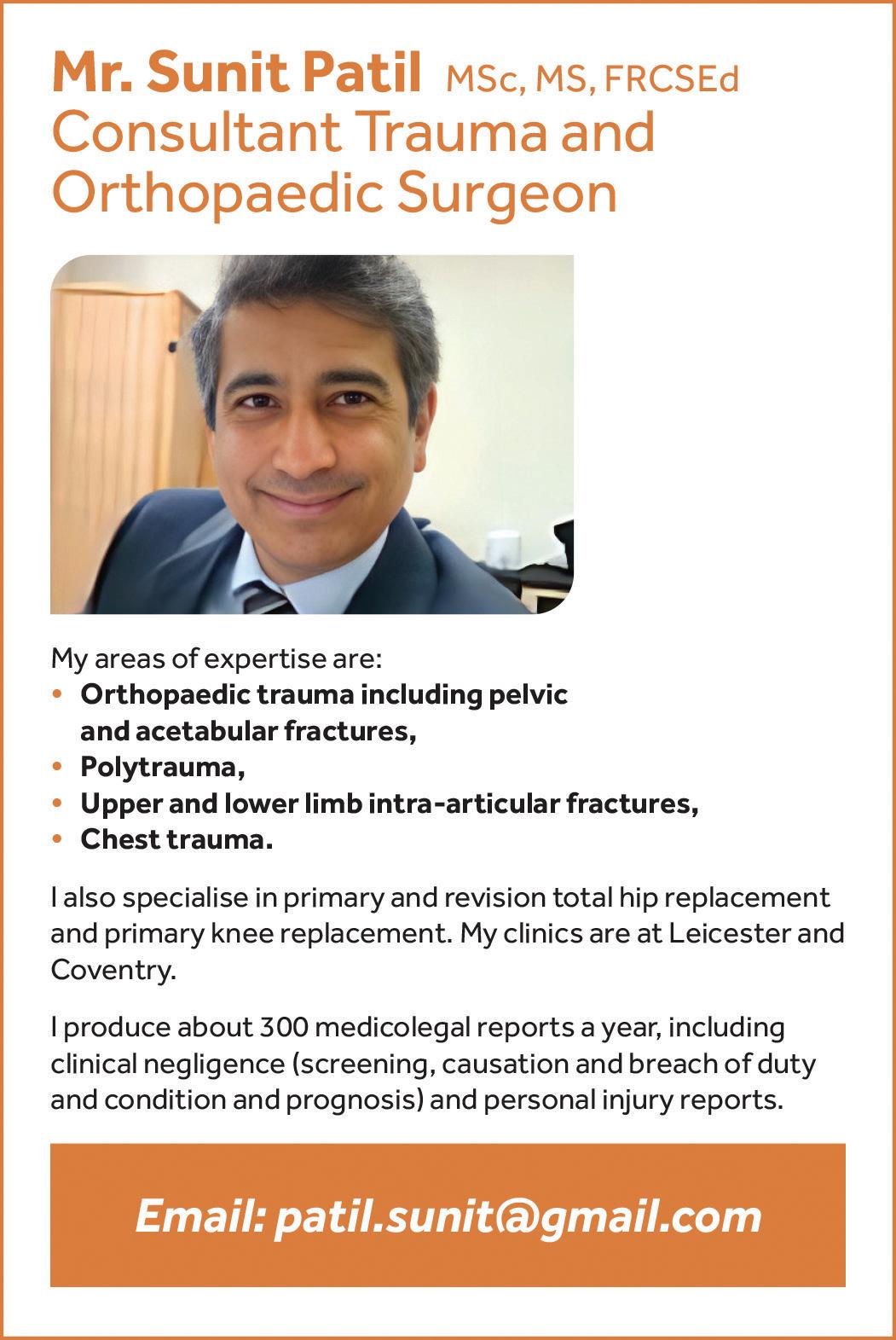
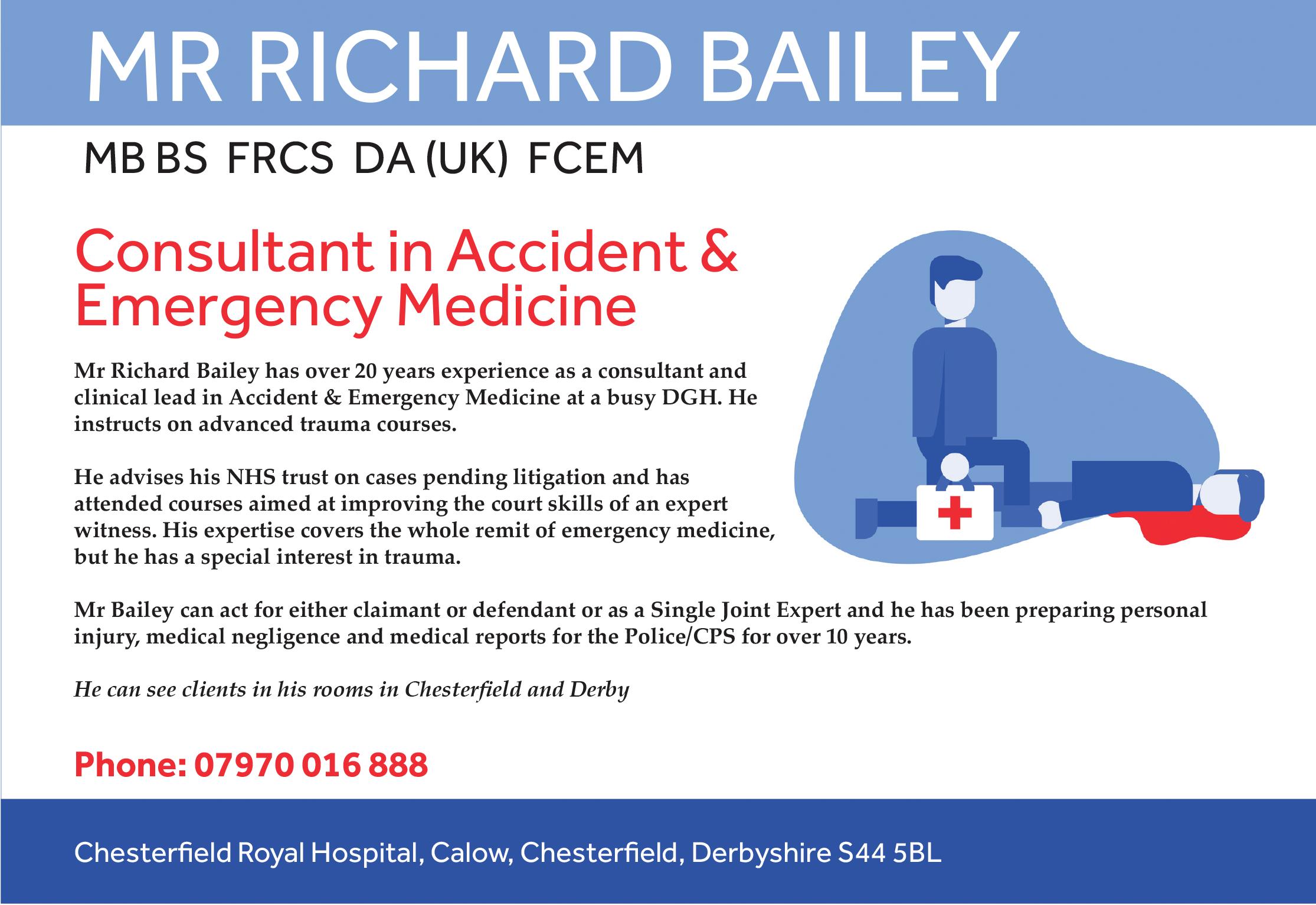
Email: bill.bailey1@nhs.net
Summary
The judge found that it was entirely artificial to think that sharing a platform speaking at a seminar during (in the case of one expert) or before (in the case of the other) giving evidence would have any effect or impact on the evidence of two expert witnesses in urogynaecology.
Learning points
Learning points for instructing parties:
• It is best to disclose any potential conflicts of interest mentioned by the experts you instruct, to the court and the other parties, even if they appear minor or tangential.
• You should remind the expert witnesses you instruct of their duties and obligations and make a point of selecting expert witnesses who can demonstrate that they have appropriate training in those duties and obligations.
Learning points for experts:
• Engaging in normal professional activities, such as sharing a platform speaking at a conference or seminar with a colleague acting in the same case, should not by itself cause a conflict.
• Expert witnesses in smaller fields will naturally be aware of most, if not all, other experts and professionals working in their field, and this should not, of itself, cause a conflict.
• Nevertheless, you should disclose any such circumstances to your instructing party.
The claimant alleged that she underwent a TVT-A tape implantation procedure that would otherwise have been avoided because of breaches of duty by the first defendant. The claimant and first defendant alleged that that a subsequent mesh excision surgery and colpsuspension performed by the second defendant were a breach of duty.
Three expert urogynaecologists provided evidence: Dr Sokolova, Mr Robinson and Mr Toozs-Hobson. The integrity of Mr Toozs-Hobon and (to a lesser extent) Mr Robinson as independent experts was attacked during cross-examination which sought to suggest that they had personal, professional and/or financial interest in the outcome of the trial and/or had a financial interest in the supply of vaginal mesh products.
During the course of the trial Mr Toozs-Hobon and Mr Robinson shared a platform speaking at a seminar for urogynaecologists which had been planned before the trial. Due to changes in the trial timetable, Mr Robinson was giving evidence over the weekend of the seminar, while Mr Toozs-Hobson was yet to give evidence. Both experts had informed their legal team of this professional commitment but had not informed the court or the second defendant or her lawyers.
The judge noted that it would have been preferable for this commitment to have been volunteered to the court and the second defendant. However, had it been disclosed, the judge would have done no more than to the remind the experts not to discuss the case between themselves, and Mr Robinson (who was in the process of giving evidence) that he was prohibited from discussing his evidence with any other person. The
judge was able to ascertain that this was in fact how the experts acted.
The judge went on to note that the sub-specialism of urogynaecology was a small one. Mr Robinson and Mr Toosz-Hobson already knew each other and the defendants before the case. She noted that “[i]t is entirely artificial to think that the organisation and attendance at the weekend seminar would have any effect or impact on [the experts’] evidence. Mr Robinson and Mr Toozs-Hobson had each already provided written reports and then a Joint Statement addressing a detailed agreed agenda. The quality of the substance of their opinion could be and was properly explored through the trial process.”
The judge rejected the suggestion that the experts had approached the task of giving evidence other than in accordance with their duties to the court.
She also rejected any suggestion that either had given evidence that had been improperly influenced by any hidden agenda of protecting personal, professional, or financial interests or had a stake in any particular outcomes in the litigation.
Sean Mosby
https://ewi-live-portal.azurewebsites.net/News/Case-Updates/author/ sean-mosby

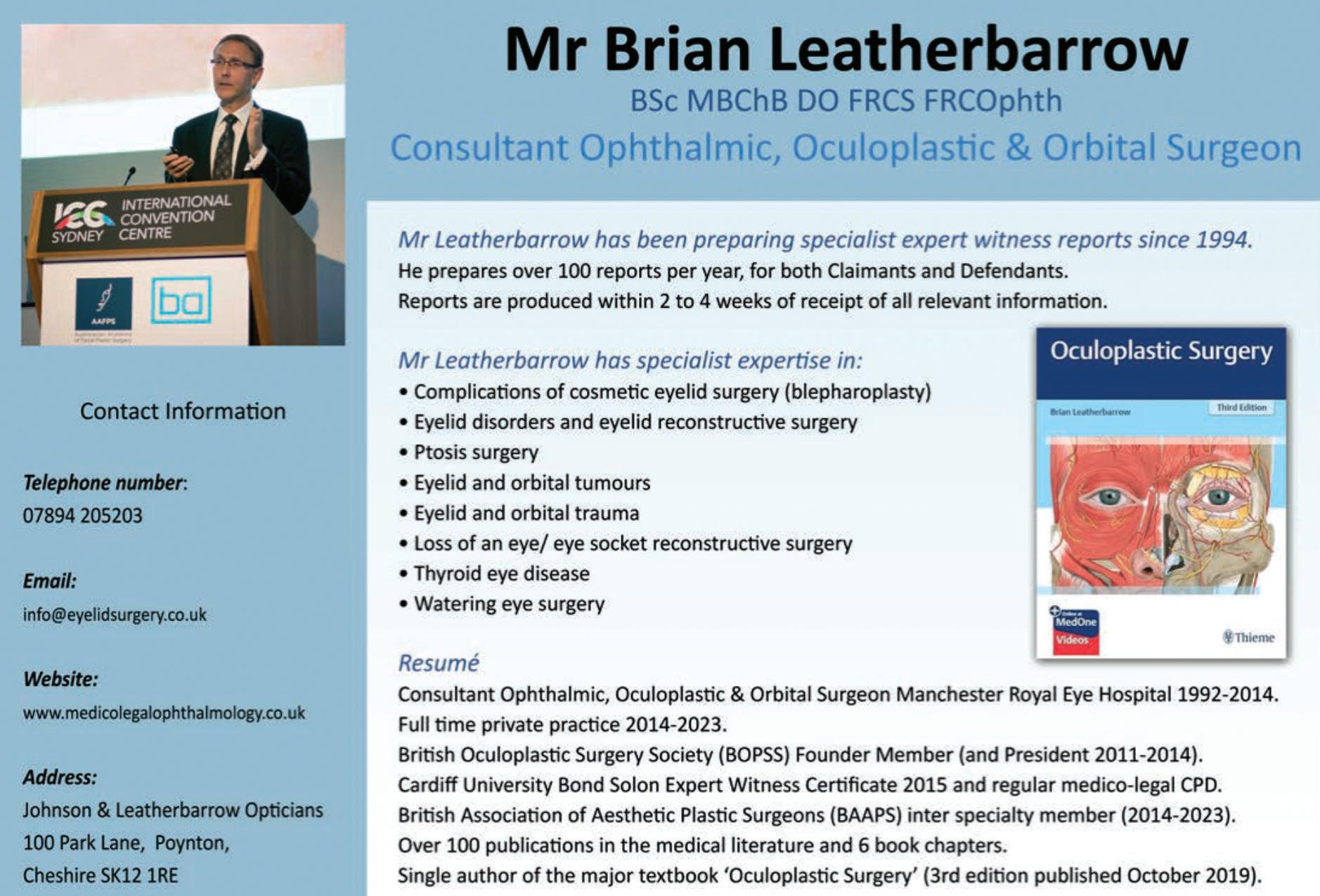
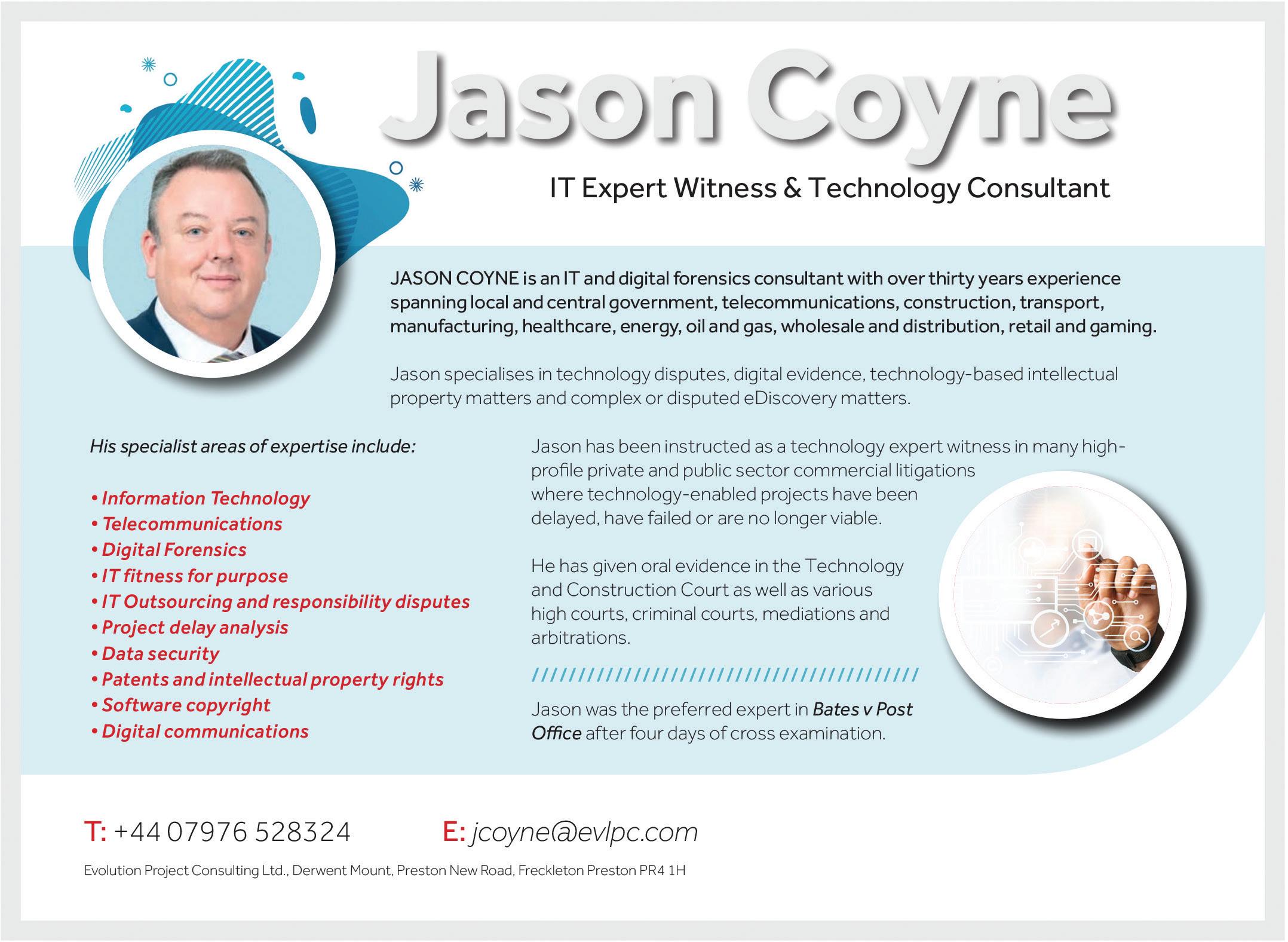
One of the key roles of the Expert Witness Institute is to ensure that policy, rule and regulatory changes are informed by the experience of our members and the needs of the expert witness community and the wider justice system. In this quarterly update, we discuss our work in this area over the last 3 months.
We attended the Civil Procedure Rule Committee (‘Committee’) open meeting in May and asked questions on the role of experts in the Committee’s processes, as a result we are meeting with the Chair of the Committee in October.
In June, the Committee temporarily paused work on its Access to Court Documents workstream to allow the Transparency and Open Justice Board to conduct the first phase of its work on its Key Objectives. The Committee provisionally allocated time in the autumn for the matter to return.
We are monitoring the implications of the 20-page limits on reports for cases allocated to the Intermediate Track. We wrote to Premex outlining our concern about advice it is providing to experts that the limit should be applied as general best practice to reports for cases outside the Intermediate Track.
Stakeholder Committee
We participated in the first meeting of the Stakeholder Committee of the Transparency of Open Justice Board in August. We also accepted the offer from the Chair of the Board to provide an initial written view on matters the Board should consider in developing its key objectives.
We met with the Forensic Science Regulator (‘FSR’) in September to discuss their guidance on expert reports and joint statements. We will be working with the FSR to ensure that the guidance is fully informed
by the experience of our members and the needs of the expert witness community.
In August, we presented a session to the Fitness to Practice case managers at the Heath Care Professions Council (‘HCPC’) to help them fully understand the role and characteristics of expert witnesses and expert evidence. The nature of expert witness work requires a different approach from case managers and an understanding of the greater chance of vexatious complaints.
We had contacted the HCPC after concerns were raised with us about how the HCPC investigates complaints to their Fitness to Practice (‘FTP’) Investigation Process about expert witnesses, leading to the invitation to present to case managers and agreement with the HCPC that its guidance needed to more accurately reflect how it investigates expert witnesses. The HCPC also agreed to consider the types of documents which were suitable for investigations into complaints against expert witnesses.
The EWI has accepted the vice chair of the Housing Condition Strategy Group which aims to improve the quality of expert evidence on housing condition and disrepair. We chaired the Group’s meeting on 18 July and are participating in the Group’s activities.
We have written an article looking at the implications for expert witnesses of the recent judgment by Senior Costs Judge Gordon-Saker in CXR v Dome Holdings Ltd –HCJ (SCCO) which required the claimant to provide a breakdown of the fee note issued by the agency showing the separate fees for the expert and the agency. The article was published in the autumn 2024 edition of Expert Matters, and we will be seeking input from members.
The Ministry of Justice intends to consider this issue in its Fixed Recoverable Costs stocktake in early 2025, so we are keen to understand the views of members on any potential changes to inform our
engagement with any future consultation process.
Informed by discussions with members and legal professionals, we are intending to write to government stakeholders to draw their attention to the implications for expert witnesses and expert evidence of continued underfunding and other systematic problems with the legal aid system.
Things we’ll be looking out for over the next couple of months
On 1 October 2024, the latest amendments to the Civil Procedure Rules will come into force. The full text of the amendments can be found at: The Civil Procedure (Amendment No. 3) Rules 2024.
The major change of interest to Expert Witnesses is the amendment to the overriding objective, with additional amendments to Parts 3, 28 and 44, to promote the use of alternative dispute resolution. This amendment follows a consultation by the Civil Procedure Rule Committee to implement the Court of Appeal Decision in Churchill v. Merthyr Tydfil CBC [2023] EWCA Civ 1416.
In late 2023, the Scottish Justice Council (‘SJC’) held a targeted consultation to gather initial feedback on proposed new Ordinary Procedure Rules, which was the next step in progressing their comprehensive rewrite of the rules. The analysis of responses document was published in January 2024, with the SJC indicating that a series of further consultations will be needed to help shape the new rules. Look out for the next consultation later in 2024.
The Transparency and Open Justice Board is due to publish its key objectives later this year. The purpose of the board is to lead and coordinate the promotion of transparency and open justice across the courts and tribunals of England & Wales.
The Civil Procedure Rule Committee has indicated that it will recommence its process on its proposed amendment to CPR rule 5.4C on ‘Access to Court Document’ once the board publishes its key objectives.
The Ministry of Justice will hold its Fixed Recoverable Costs Stocktake in early 2025. The Ministry has indicated that the Stocktake will include a consideration of whether parties should or should not be required to give a breakdown of fees and whether agency fees are recoverable, in principle, in FRC cases. The issue of the breakdown of fees was addressed in the recent judgment by Senior Costs Judge Gordon-Saker in CXR v Dome Holdings Ltd –HCJ (SCCO) which required the claimant to provide a breakdown of the fee note issued by the agency showing the separate fees
for the expert and the agency.
As noted above, it will be important for the EWI to engage effectively with any potential consultative process on this issue.
Following its recent consultation on version 2 of the Forensic Science Code of Practice, the Forensic Science Regulator (‘FSR’) intends to update its guidance on expert evidence. The EWI is working with the FSR to help ensure that the proposals are informed by the experience of our members and the needs of the expert witness community.
The Family Procedure Rule Committee is consulting on a new draft Practice Direction 27A. Practice Direction 27A sets out universal practice in respect of court
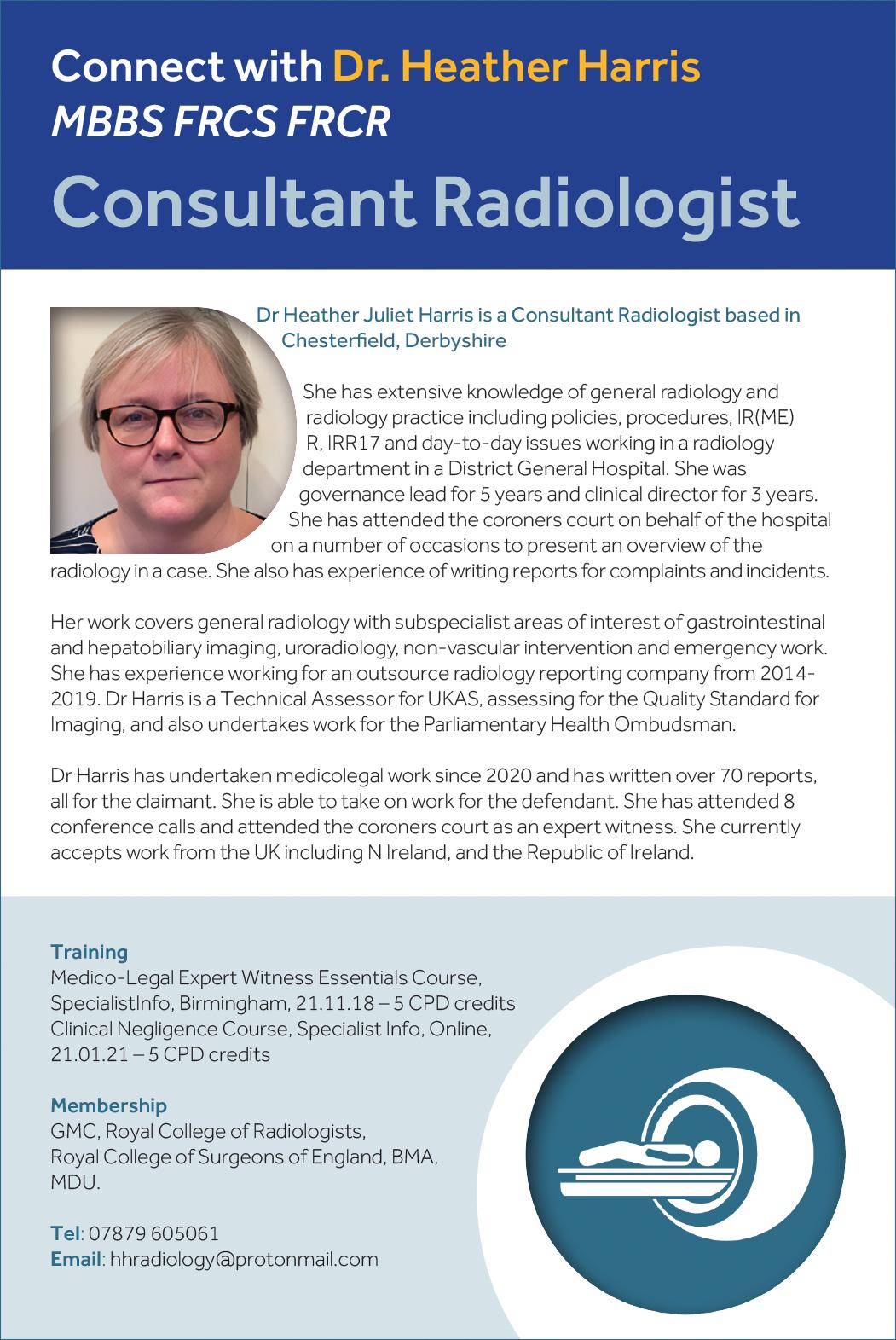
bundles in family proceedings in the High Court and the Family Court.
The deadline for responses is 21 October 2024, with the new PD27A coming into force by Spring 2025. The EWI may provide a response to the consultation and would welcome the views of members to help inform the response.
We would welcome hearing the views of members on any of the issues discussed in this update at policy@ewi.org.uk
Sean Mosby


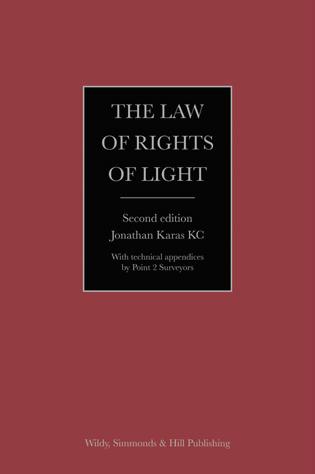
By Jonathan Karas KC With technical appendices
Surveyors
by Point 2
ISBN 978 0 85490 344 3
WILDY, SIMMONDS & HILL PUBLISHING
www.wildy.com
Most helpful practical advice in rights of light cases for 2024
Jonathan Karas KC has established “The Law of Rights of Light” from Wildy, Simmonds and Hill Publishing, as the leading specialist textbook in the field of rights of light and it is used by practitioners, whether barristers, solicitors, or surveyors for both advice and potential litigation.
The new edition has been fully revised and brought up to date to include recent developments in the law such as section 203 of the Housing and Planning Act 2016, Beaumont Business Centres Ltd v Florala Properties Ltd [2020] and Fearn v The Board of Trustees of the Tate Gallery [2023]. It goes without saying that commentaries on the new case law are invaluable for practitioners in this difficult area.
Karas considers how rights can be established, what constitutes an infringement of those rights and what remedies can be provided for the infringement of those rights. The book is useful for both those who are relatively new to this area of land law, and to more experienced lawyers and to unrepresented parties seeking a remedy.
The author sets out how claims may be defended and how rights can be overridden using the mechanism under section 203 of the Housing and Planning Act 2016. By setting the law in its wider context, “The Law of Rights of Light” comprehensively shows that, despite the technicalities which arise, “there are no legal problems with which a competent lawyer cannot grapple”. And that sums up the beauty of this publication and many others in the Wildy handbook series.
We were particularly impressed with the advice
from the two illustrated technical appendices by Point 2 Surveyors which are, in our view, invaluable, for practitioners when trying to understand the heavier issues in right to light litigation. The first appendix explains how light is measured; and the second appendix sets out how losses are valued. Both appendices also explain the limits of current methodology which we believe will be of great use to the specialist courts who hear these cases.
The new, second edition has been described as “an essential addition to the shelves of lawyers, surveyors and other property professionals”. It is a comment we fully endorse as the book has wide appeal for students and unrepresented parties wishing to gain a better understanding of this serious (and expensive) area of conflict in English Land Law.
The date of publication of the hardback second edition is cited as May 2024.
a receiver appointed by a mortgagee out of court”. The point throughout is that these receivers are “deemed to be the agent of the mortgagor”, so there is considerable scope for misunderstanding which is why this work is so helpful.
Legal advisers will find the expertise offered here brilliant for “the powers and duties of a receiver depend critically on what type of receiver one is dealing with.” The book shows that “receivers are certainly not all the same”, so the publishers, Wildy, Simmonds and Hill, have asked the authors to thoroughly update this excellent work for 2024.
It remains a great book for practitioners offering references to over 40 new cases, the book deals with a number of issues which have arisen since 2018, namely considering in detail the difficult issue of the effect of the receivership on the borrower’s powers and the borrower’s ability to exercise those powers, in the context of Ghai v Maymask [2020].
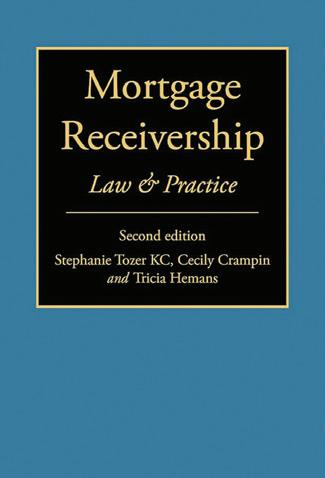

By Stephanie Tozer KC, Cecily Crampin and Tricia Hemans
ISBN 978 0 85490 299 6
WILDY, SIMMONDS & HILL PUBLISHING
www.wildy.com
The role of receivers appointed out of court: now in a second edition for 2024
The second edition of this authoritative title on mortgage receivership has been written by Stephanie Tozer KC, Cecily Crampin and Tricia Hemans. The writers’ objective it to extend “the cohesive theory of mortgage receivership developed in the first edition through reference to recent cases, whilst maintaining its focus on providing practical guidance to the relevant law and procedure”.
The work is limited to the scope of receivers appointed by mortgagees out of court. “one of the difficulties in giving advice in this area”, they write, “is in trying to work out whether a decision in a particular case as to the powers and duties of a different type of receiver also applies to the specific case of
In addition, there is an updated possession chapter by reference to Menon v Pask [2019] and discussion on the extent behind the reasoning in that decision, and how it can be extended.
We also get a new section on statutory bars to receivership including an overview of the effect of sanctions; a revised chapter on regulation by reference to a number of cases decided; and
an update to discuss new property statutes and their relevance to receivership in relation to ground rents under residential leases, registration of overseas entities, and the Building Safety Act 2022.
What we found most useful was the practical advice about what receivers should do in particular situations and how litigation involving receivers should be conducted – Wildy have done us proud here. The book is essential reading for lawyers advising receivers, or who are involved in litigation for or against receivers, and for receivers themselves.
The date of publication of the hardback second edition is cited as May 2024.
Appreciations by Elizabeth Robson Taylor MA of Richmond Green Chambers and Phillip Taylor MBE, Head of Chambers, Reviews Editor, “The Barrister”, and Mediator
The LSSA (Legal Software Suppliers Association) is pleased to announce that Yao Technology is the latest legal technology provider to join the Association.
Yao offers a modern, cloud-based solution for managing legal practices, which has been designed by lawyers, for lawyers. The platform empowers firms to streamline operations, automate compliance and enhance client experiences, ultimately boosting productivity and profitability. Yao’s innovative features, including its digital compliance tools, are designed to help law firms stay ahead of industry trends while meeting the everevolving needs of their clients.
As the leading body for developers and vendors of legal systems, the LSSA upholds technology standards and manages areas of
mutual interest between lawyers and providers of legal software. The LSSA will provide a platform for Yao to connect with other industry leaders and help them to contribute to shaping the future of legal technology.
LSSA CEO Kevin Horlock comments,
“The LSSA is delighted to welcome Yao to our diverse community of legal tech vendors. We believe that their unique lawyer-led perspective and commitment to innovation will make them a valuable addition to our Association, further advancing legal technology.”
Yao co-founder, Col Secomb, says;
“Joining the LSSA is a significant milestone for Yao. Our mission is to bring the latest technology to the legal profession with powerful, yet simple

functionality, offering intuitive, lawyer-led solutions that enhance efficiency and client satisfaction. By becoming a member of the LSSA, we gain valuable industry credibility and access to a network of legal tech leaders, which will help us continue to innovate and grow in the UK market and beyond.”
He adds: “We recognised that the LSSA's strong focus on legal technology, its established network of members and partners and its active role in policy discussions align perfectly with our values. Membership of the LSSA will allow us to share best practices, collaborate with peers and contribute to the development of standards that benefit the entire legal tech community.”
For more information on Yao and its mission to transform the legal landscape, visit YAO (yaotechnology.com)
The LSSA (Legal Software Suppliers Association) is delighted to announce that Adfin is the latest legal technology provider to join the Association.
Adfin enhances the payment experience for both lawyers and their clients. The platform automates the entire invoice-tocash process, including invoice distribution, payment reminders, and payment collection. By leveraging modern infrastructure, Adfin significantly reduces the cost of accepting card and bank payments, as well as the expenses associated with manual payment processing and reconciliation for legal practices.
The company faced the challenge of building its presence in the legal market as experts in payments and banking infrastructure. The LSSA has provided useful advice, contacts, and partners to support Adfin’s continued growth.
Adfin CEO, Tom Pope says “Joining the LSSA marks a pivotal moment for Adfin. Our mission is to streamline and modernise the payment process for professional services, making it more efficient and user-friendly. By becoming a member of the LSSA, we boost our brand’s

credibility and trustworthiness through recognised industry affiliation and gain valuable networking opportunities.”
He adds: ”We have seen growing demand from lawyers and legal software companies for our services, so it was important for us to join the LSSA to collaborate closely with other providers in the industry. We felt the LSSA is aligned with our values, offering the ability to share best practices, industry news, and work on common standards. Our team is experienced in working in highly regulated industries and building technology, and we hope to share
these learnings with LSSA members for the betterment of the legal tech industry.”
LSSA CEO, Kevin Horlock, comments, “The LSSA is delighted to welcome Adfin to our vibrant and diverse community of legal tech vendors. We are confident that their expertise in payment solutions will make them a valuable addition to our association, fostering further advancements in legal technology.”
Adfin is an innovative legal tech company that offers advanced payment solutions for legal practices. The platform automates the full invoice-to-cash process, enhancing efficiency and reducing costs for lawyers while providing clients with a seamless payment experience. Founded in 2024, Adfin is committed to transforming the payment landscape in the legal industry by leveraging innovative technology and deep industry expertise. For more information please visit: www.adfin.com

As all Deputies and Court of Protection specialists will know, applying for a Statutory Will can be a complicated and time consuming matter. As part of the duty of care, and requirements for making a Statutory Will, it is necessary to hold a copy of the person’s existing Will, a draft of the proposed Will, details of their family, assets and income, as well as medical evidence of their incapacity in order to provide these to the court, together with any other evidence the court requires.
Anyone who would be potentially affected by the application (perhaps a beneficiary who would lose out, for example) will be a party to the court proceedings. Finders International specialises in researching P's next of kin, providing a verified family tree and a full report of the required findings to support your Application to Court.
Here are some of the ways in which a probate genealogist can help:
1. Verifying Family Tree Information:
We can conduct thorough research to trace and identify all of P’s next of kin according to intestacy rules. We can do so with little or no contact with the family, at the authority of the Deputy, and ensure that our research is backed by documentary evidence. The court or the deputy may receive information about P’s family from various sources, including family members. This information can often be inaccurate; therefore, we can verify the accuracy of any information already held, ensuring that the family tree is comprehensive and reliable.
2. Resolving Complex Family Scenarios:
In cases where the family structure is complex or unconventional, a probate genealogist can provide expertise in unravelling intricate family scenarios. This includes stepsiblings, half-siblings, or other unique family relationships. With modern families spread across the globe our international expertise can assist in even the most complicated of family make ups, and wherever people may live.
3. Ensuring you are aware of P’s existing Will & financial assets
Ensuring you know of any Will P may have made in the past is crucial to this process. Finders can assist by conducting a comprehensive Will Search to identify any Will that may have been made before P’s affairs were managed under Deputyship Order. Additionally, a full missing asset search can also be conducted for P, ensuring that you are aware of the full financial picture.
4. Providing Evidence for the Court:
The findings of a probate genealogist can be presented as evidence to the Court of Protection. This documentation helps validate the accuracy of the family tree and ensures the correct family members are notified of the process.
Insights into the research process
A question that we are often asked is, ‘How do you do it?’ Many
who have researched their own family tree will know that birth, marriage, and death records are essential in confirming findings. At Finders International, we also have in-house databases, local representatives, and a network of international researchers to assist with our research. Each case comes with its challenges, including children born out of wedlock, overseas research and common surnames. Our team work on cases with these elements on a daily basis and carry out research for Court of Protection teams all over the country, so have the experience to overcome these research hurdles.
At the point of our instruction, the only information held was that P had a deceased partner and one living cousin.
Our research first confirmed that P had no children and was an only child.
Extensive research using all available genealogical resources confirmed that P had no living Paternal family. However, we confirmed that P’s maternal family was larger than expected.
During the course of our research, we identified 6 maternal aunts and uncles who left descendants, identifying a number of living cousins.
As part of our verification process, we obtained birth, marriage and death certificates and identified current addresses for all P’s next of kin. This information was provided to the Deputy in an easily digestible family tree and report, with appropriate supporting documentation. In this case, at the Deputy’s request, no contact was made with the family before our report was submitted.
Our involvement in this case was key, as we identified three more family members in addition to the cousin previously known. This full picture enabled the Deputy to proceed with the Statutory Will Application and notify all the correct next of kin.
Our expertise in genealogical research ensures a thorough and accurate representation of the P’s family connections, enabling confidence in the information provided to the Court for the purposes of obtaining a Statutory Will.
Finders International can assist pre-deputyship application if the court requires you to contact family, friends or neighbours of P. We can also assist with Statutory Will Application research, Missing Will and Assets searches, Administrator searches and Unoccupied Property Insurance. If you have a case like the above or have any questions regarding our services, contact us today at quotes@ findersinternational.co.uk, call 0800 085 8796 or visit our website www.findersinternational.co.uk

